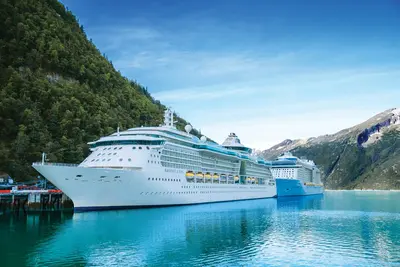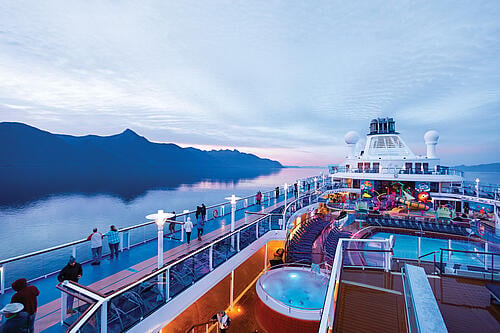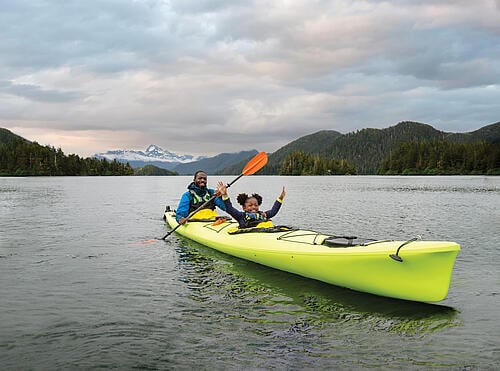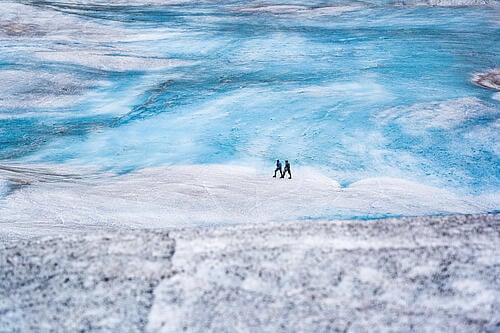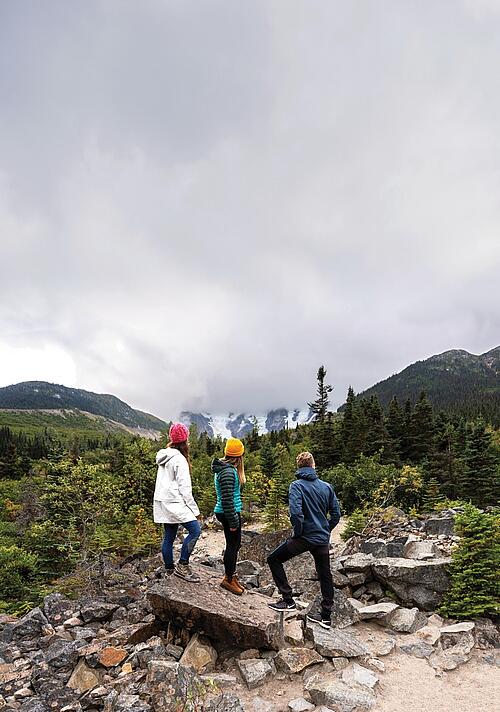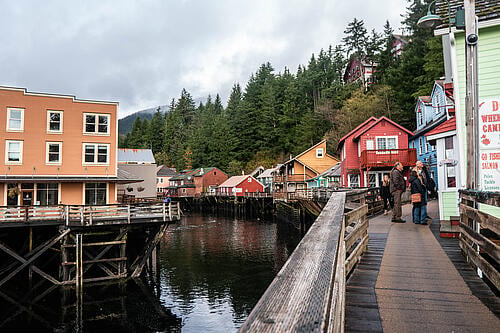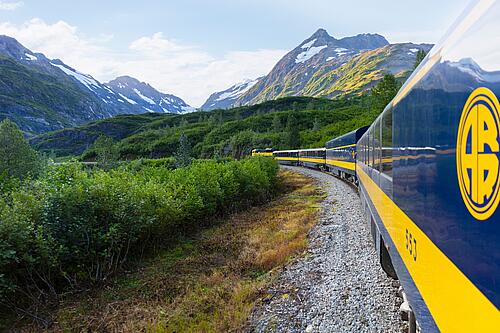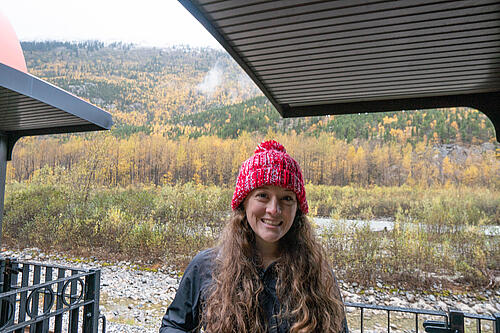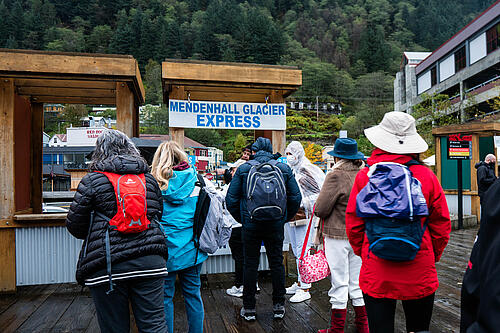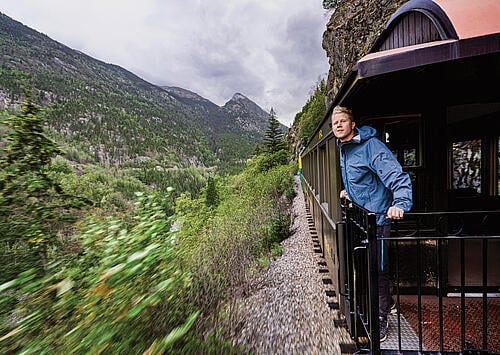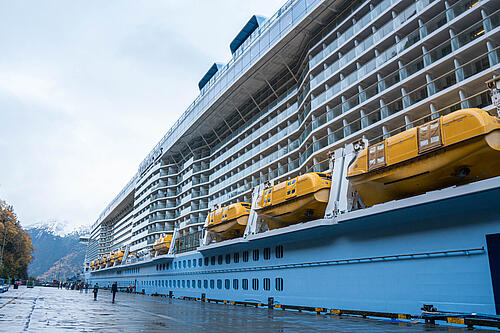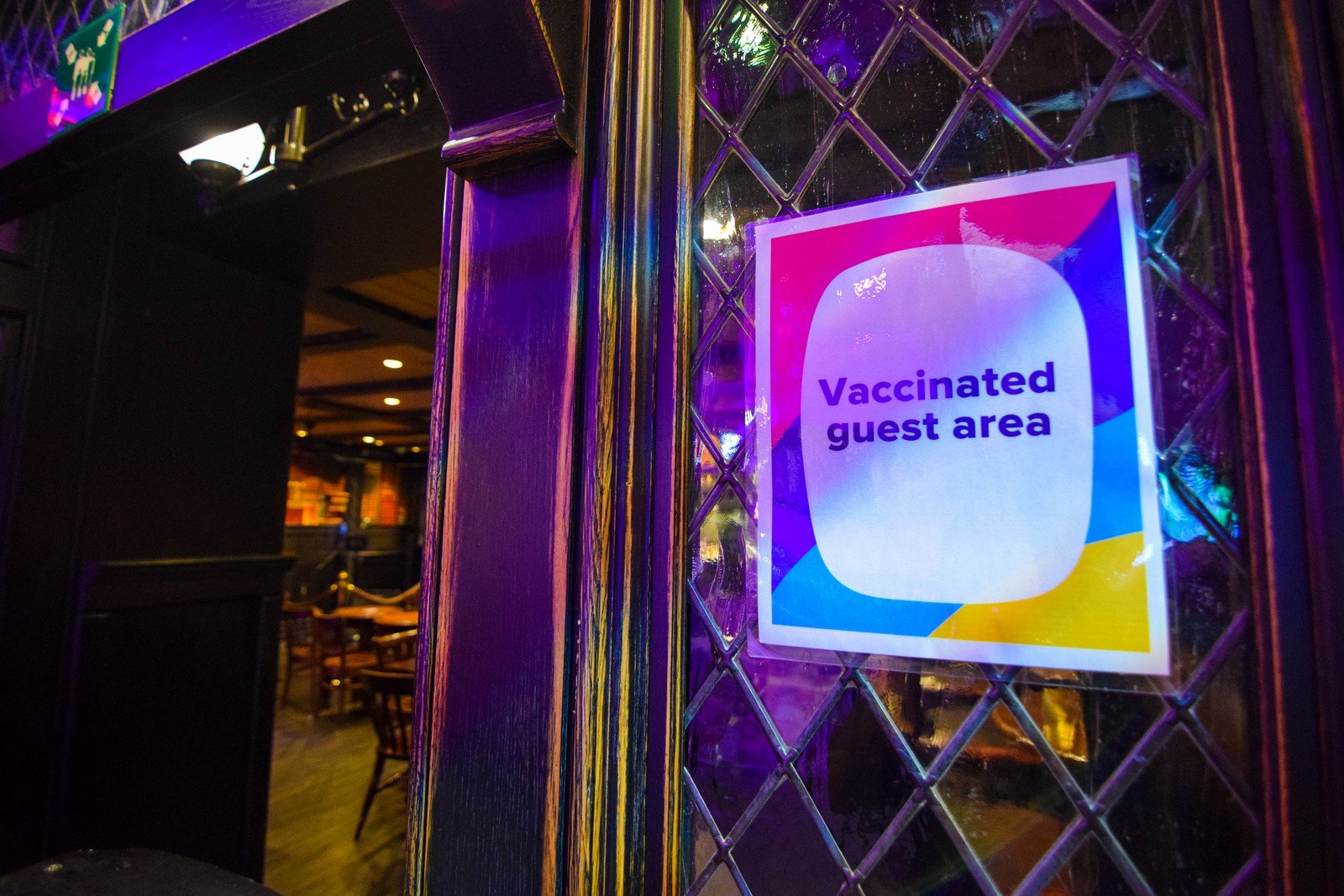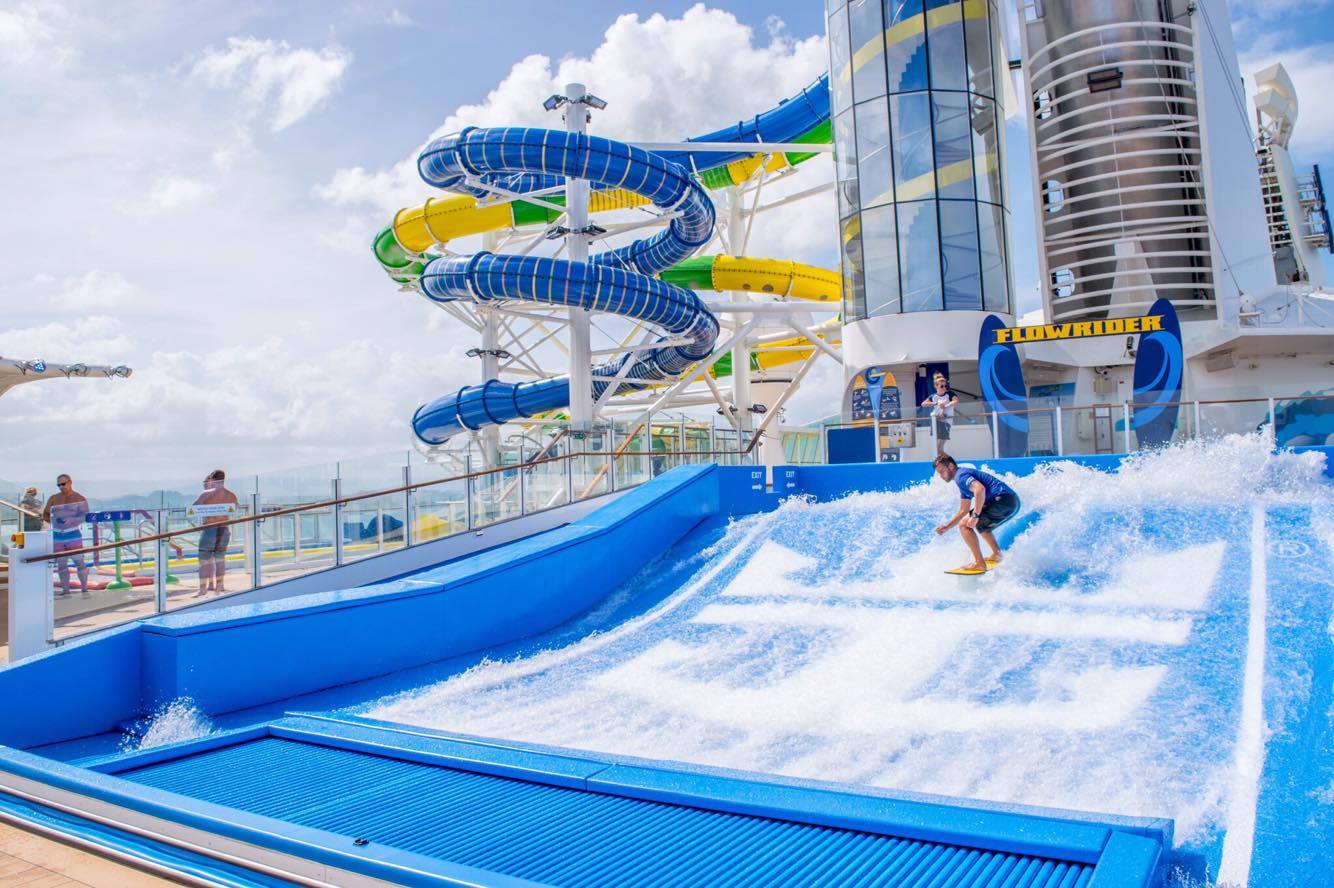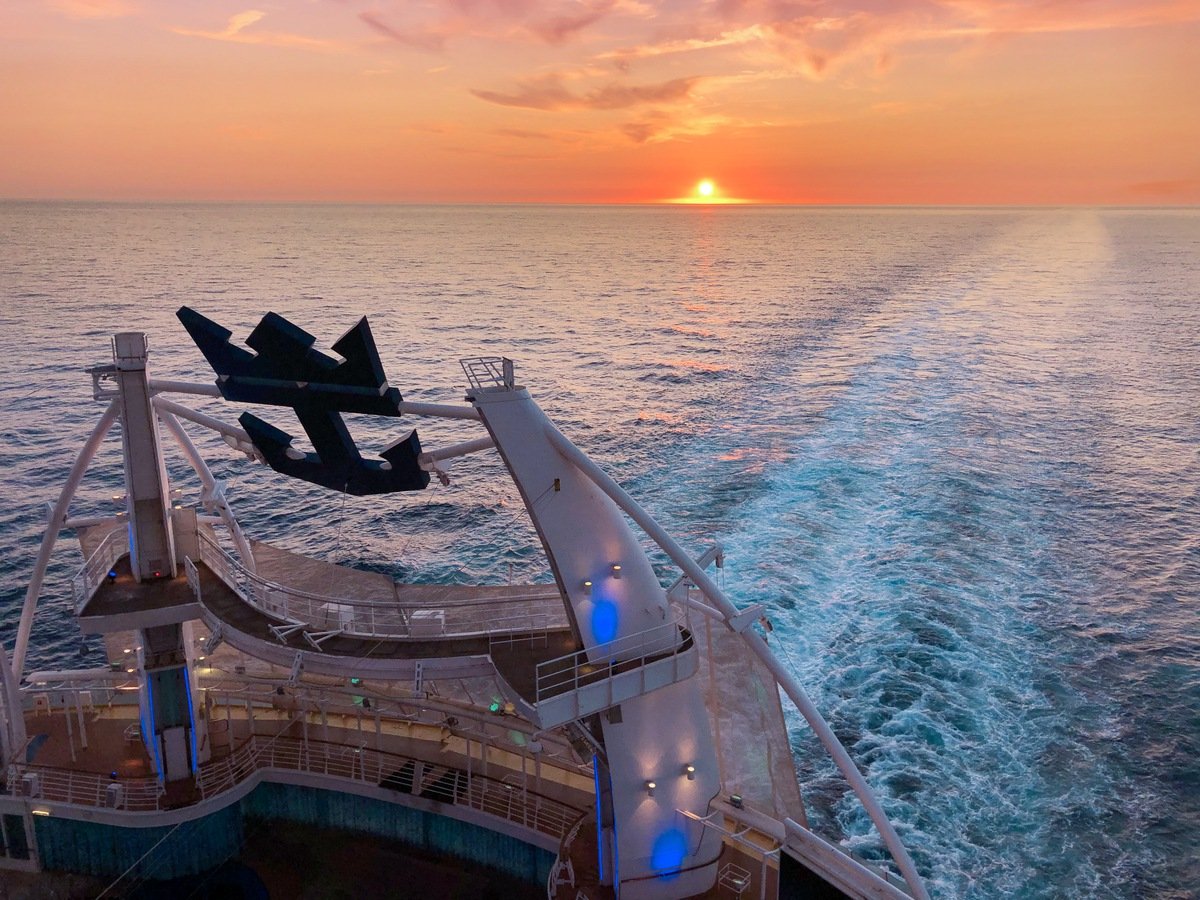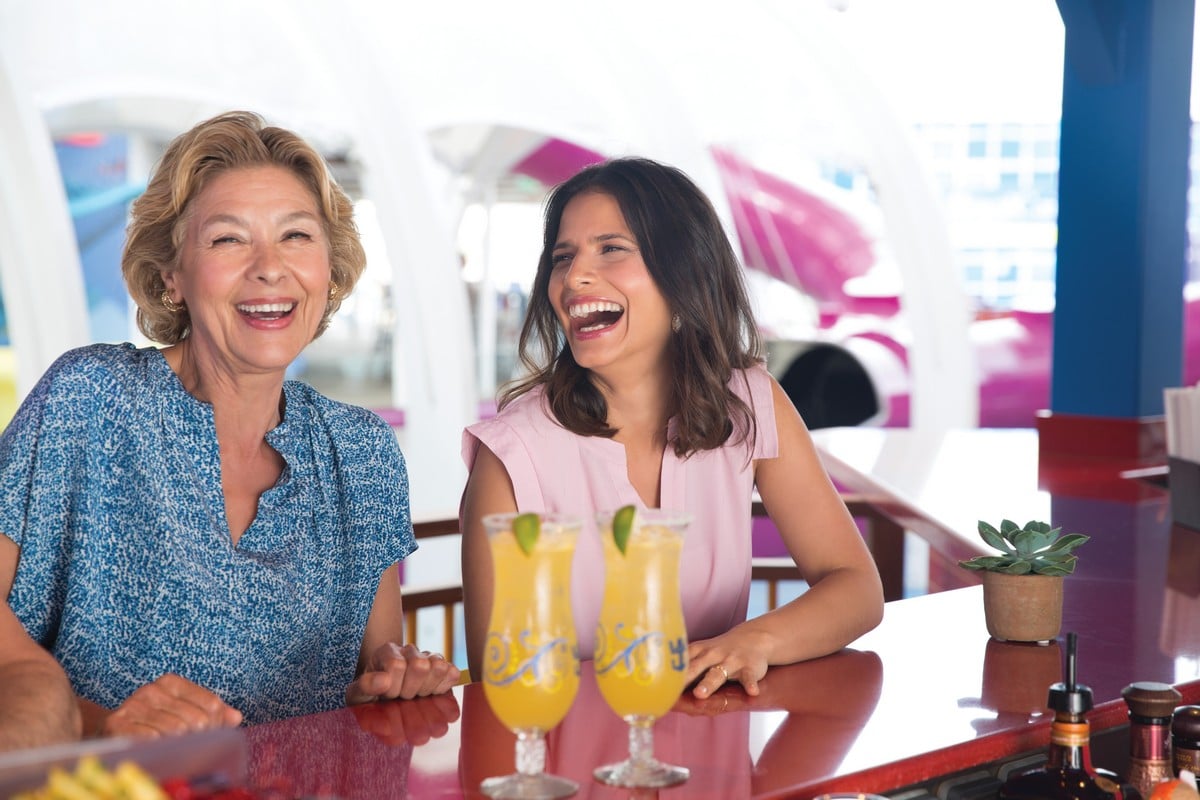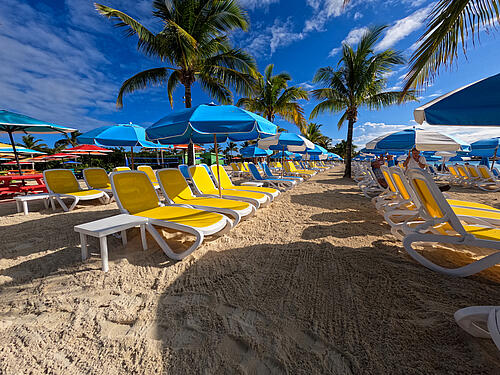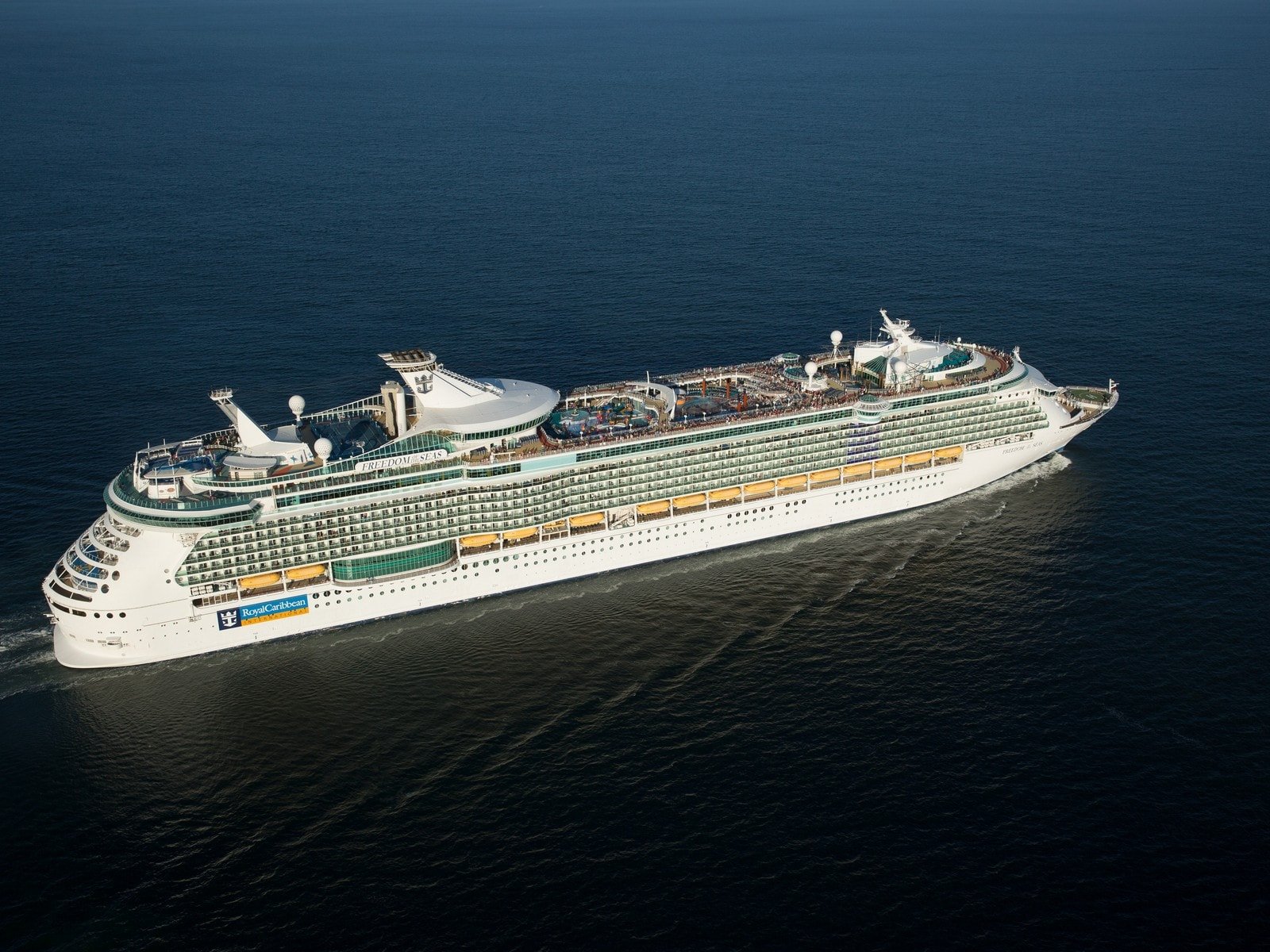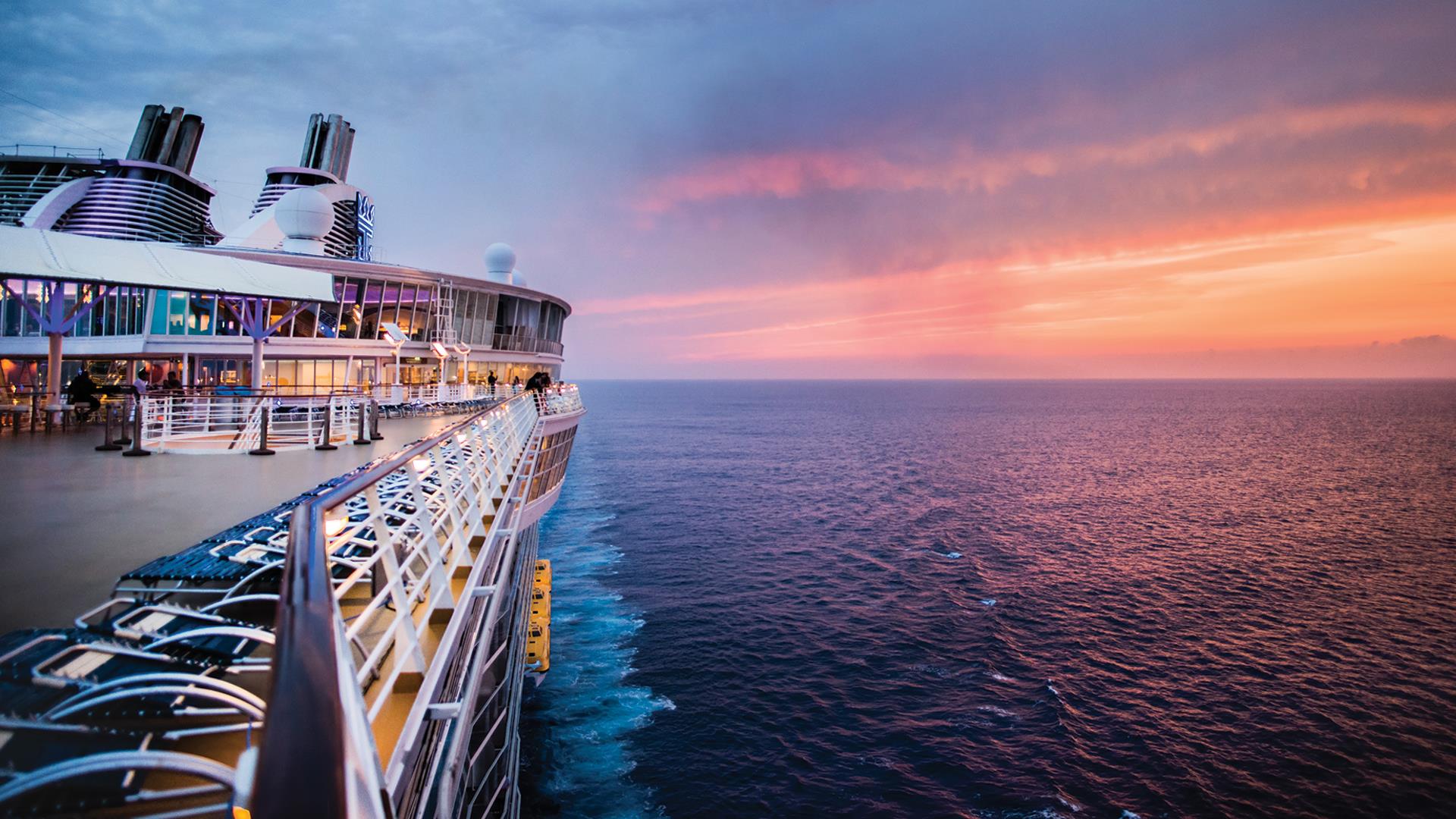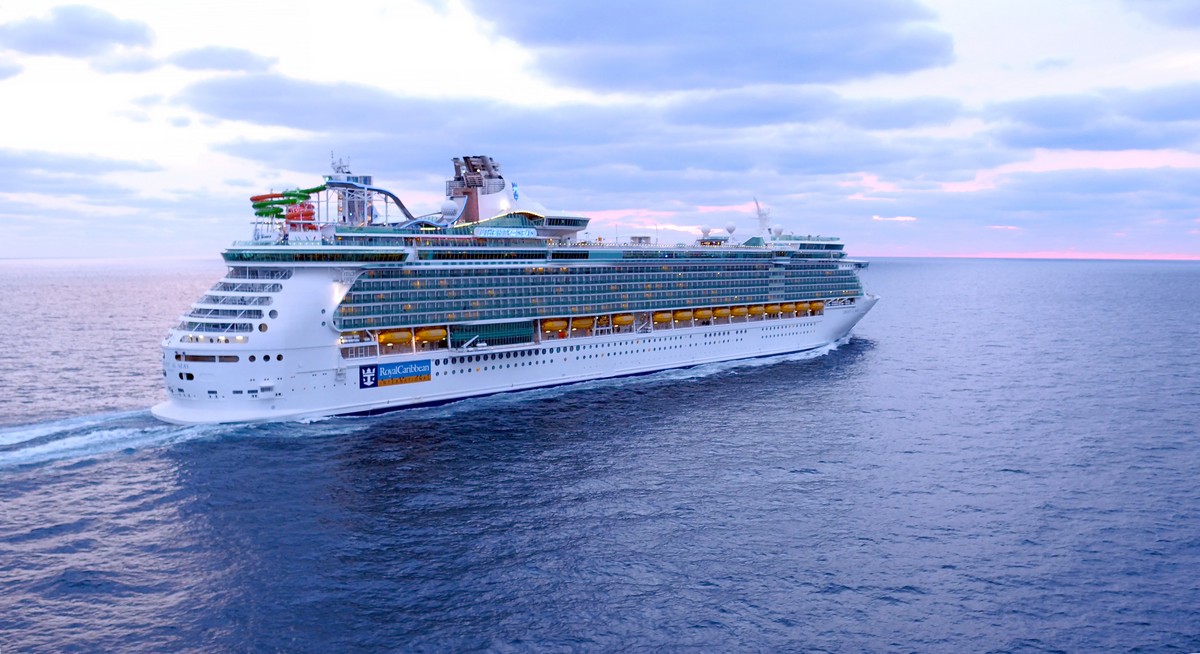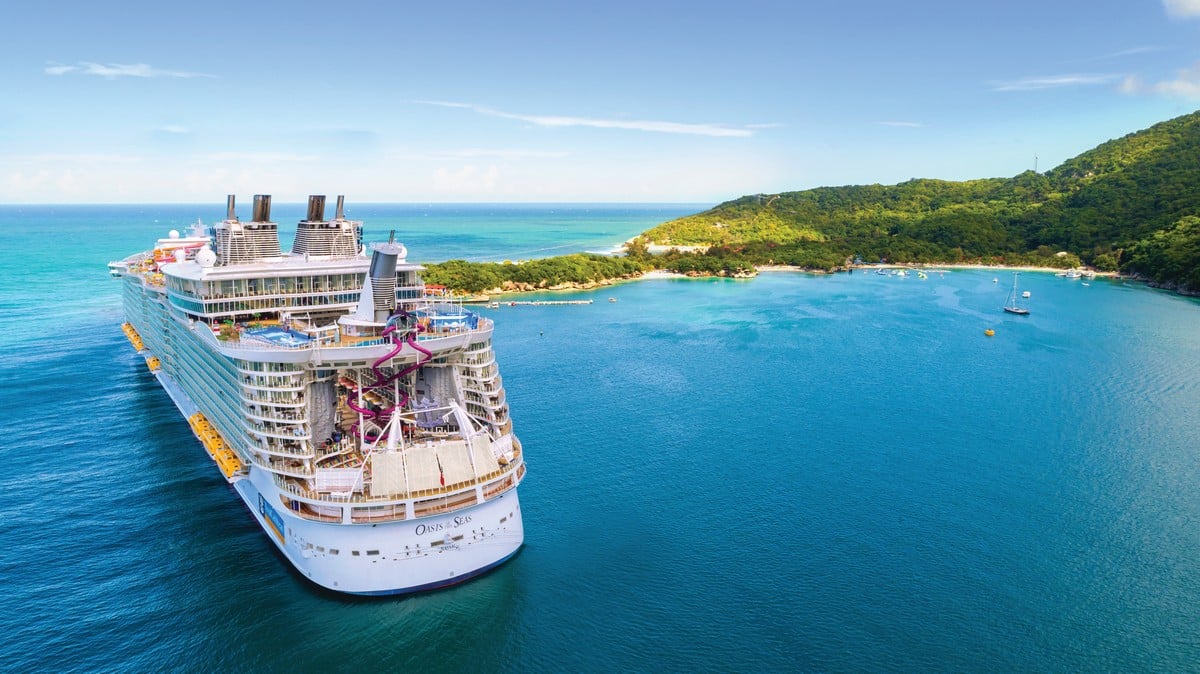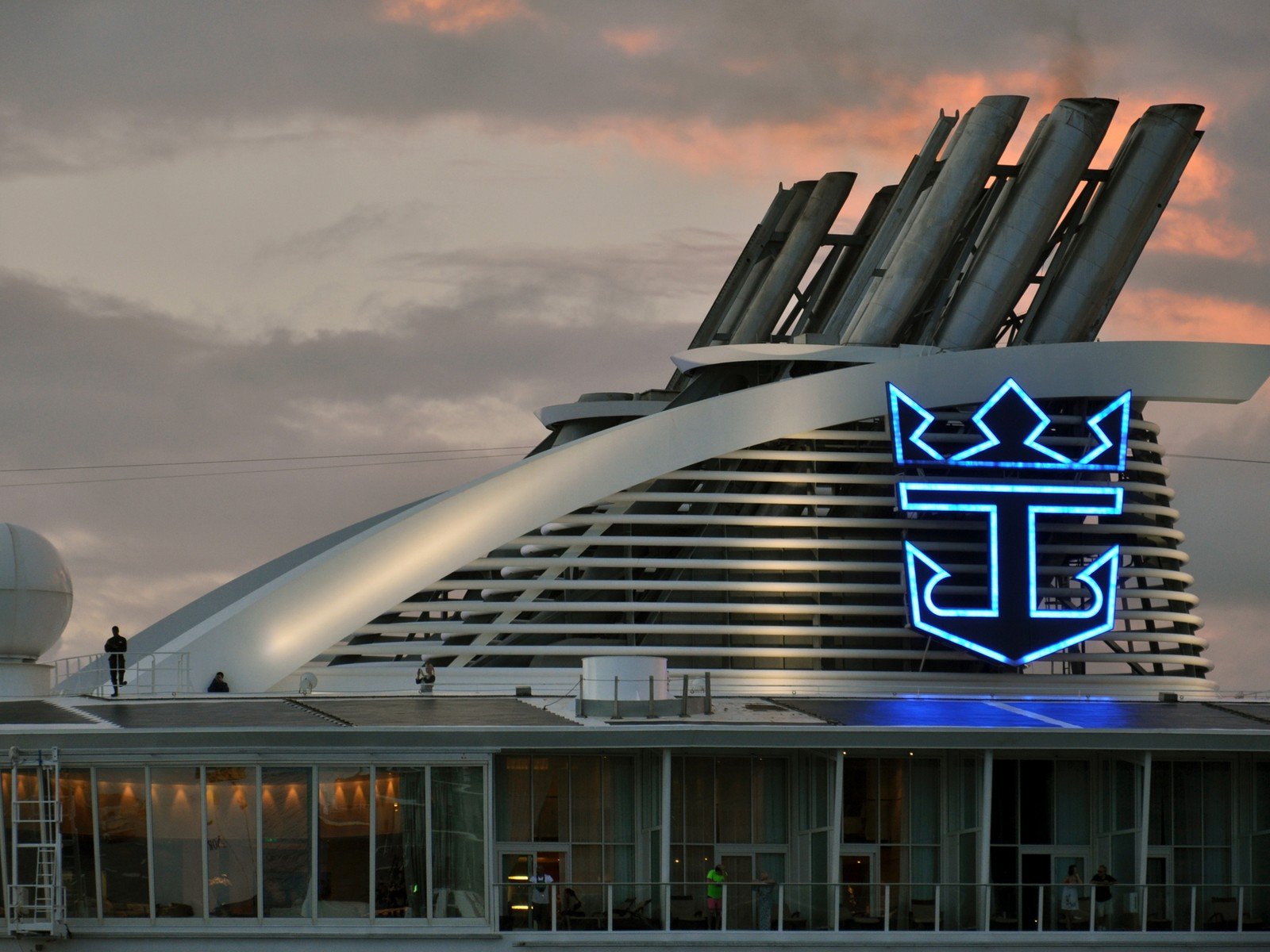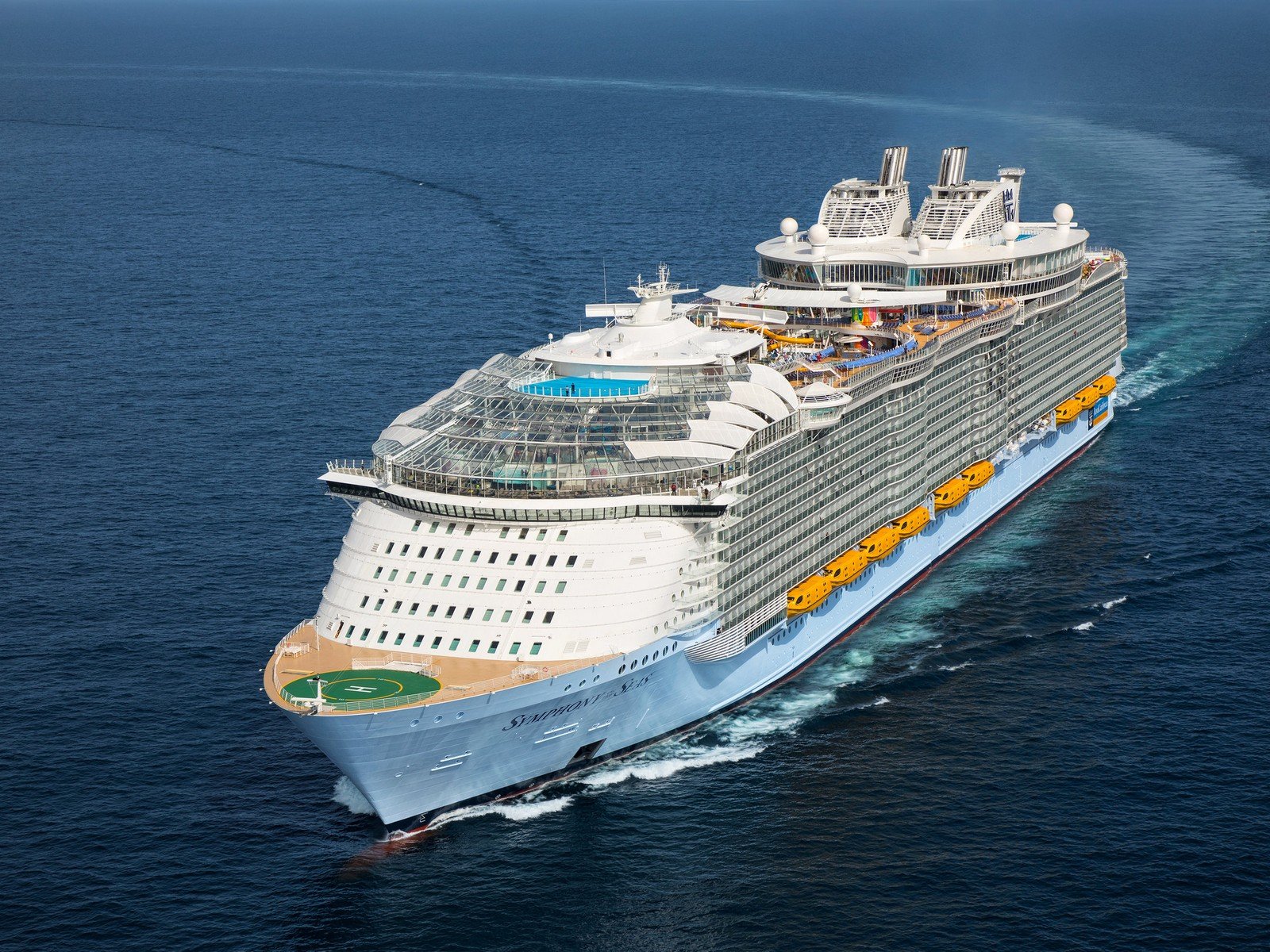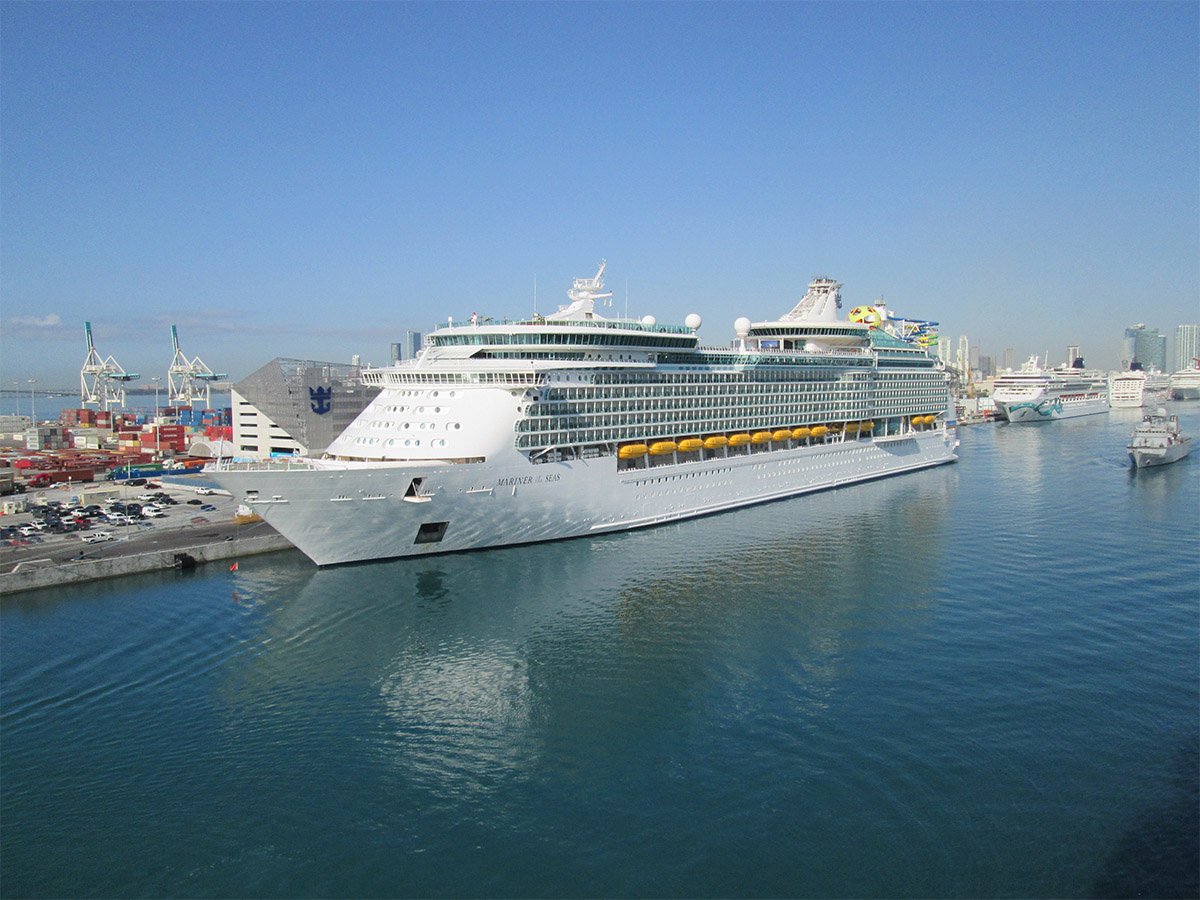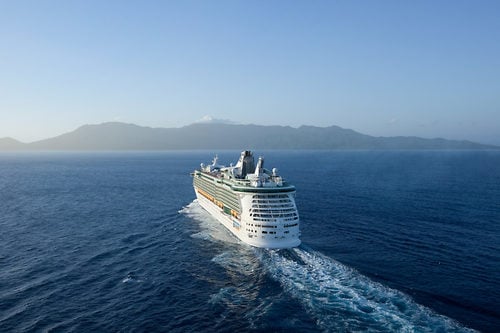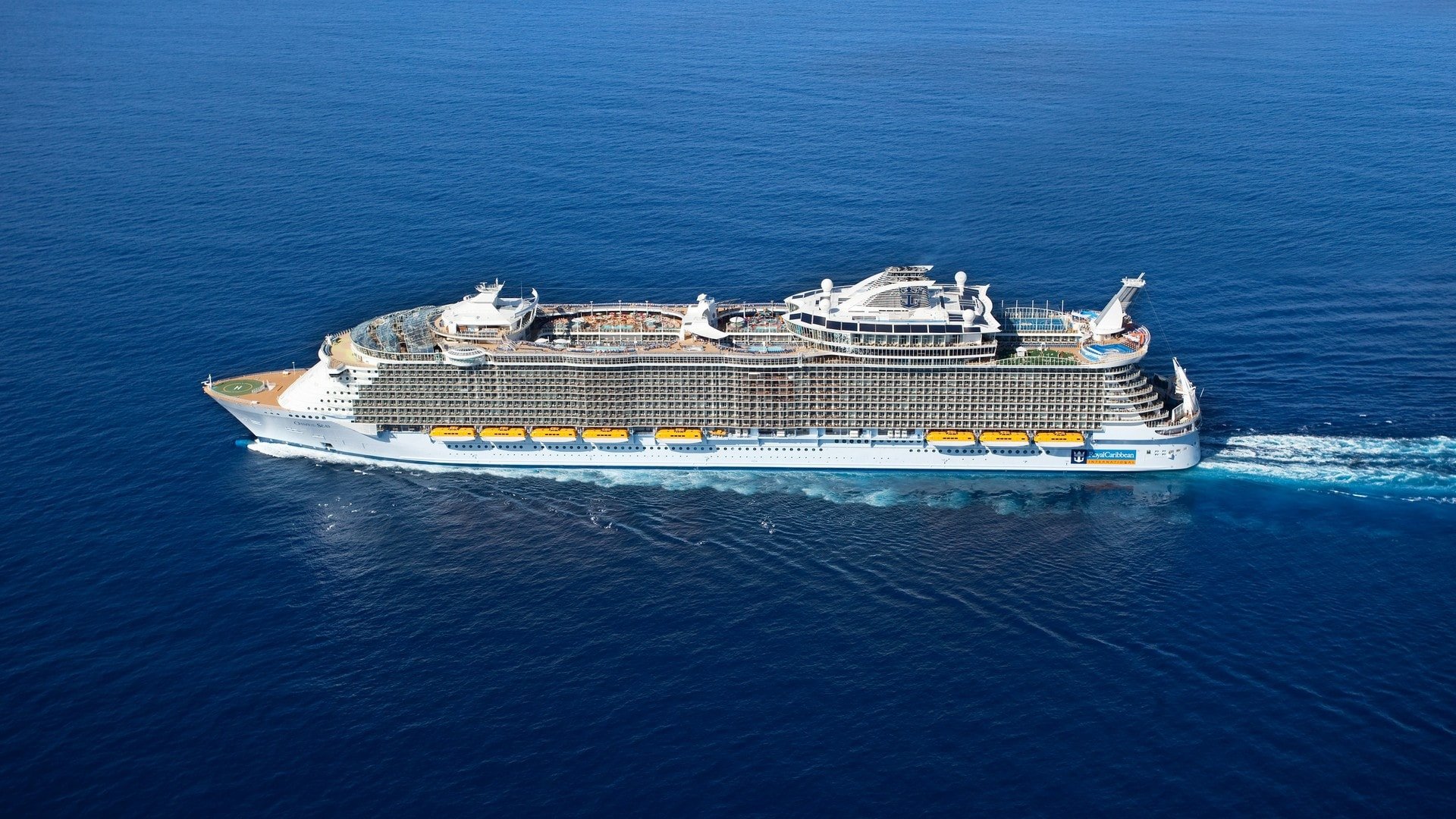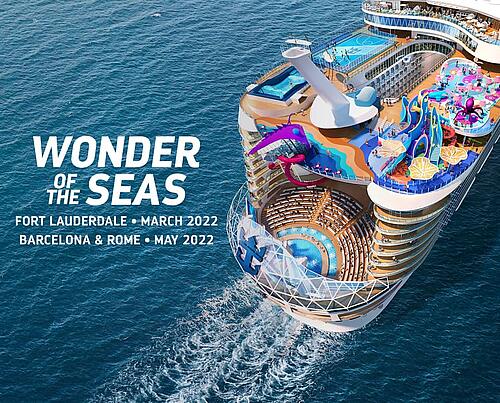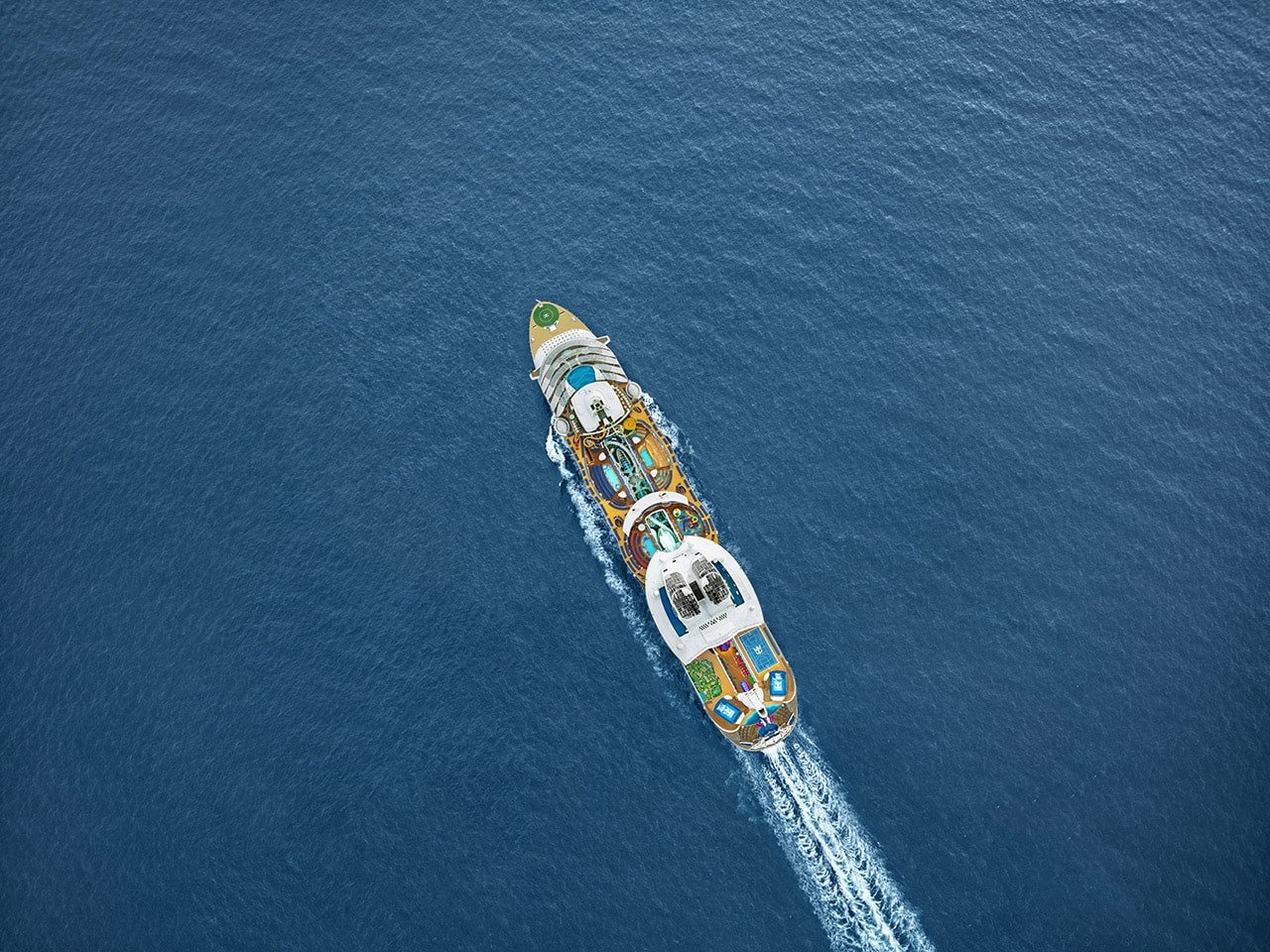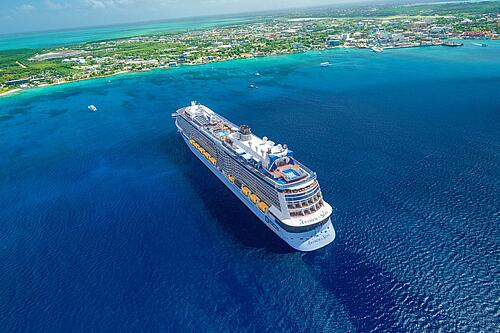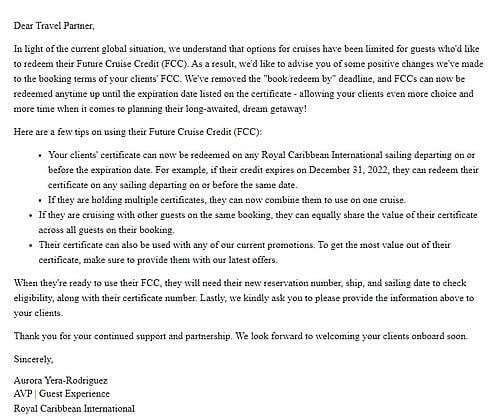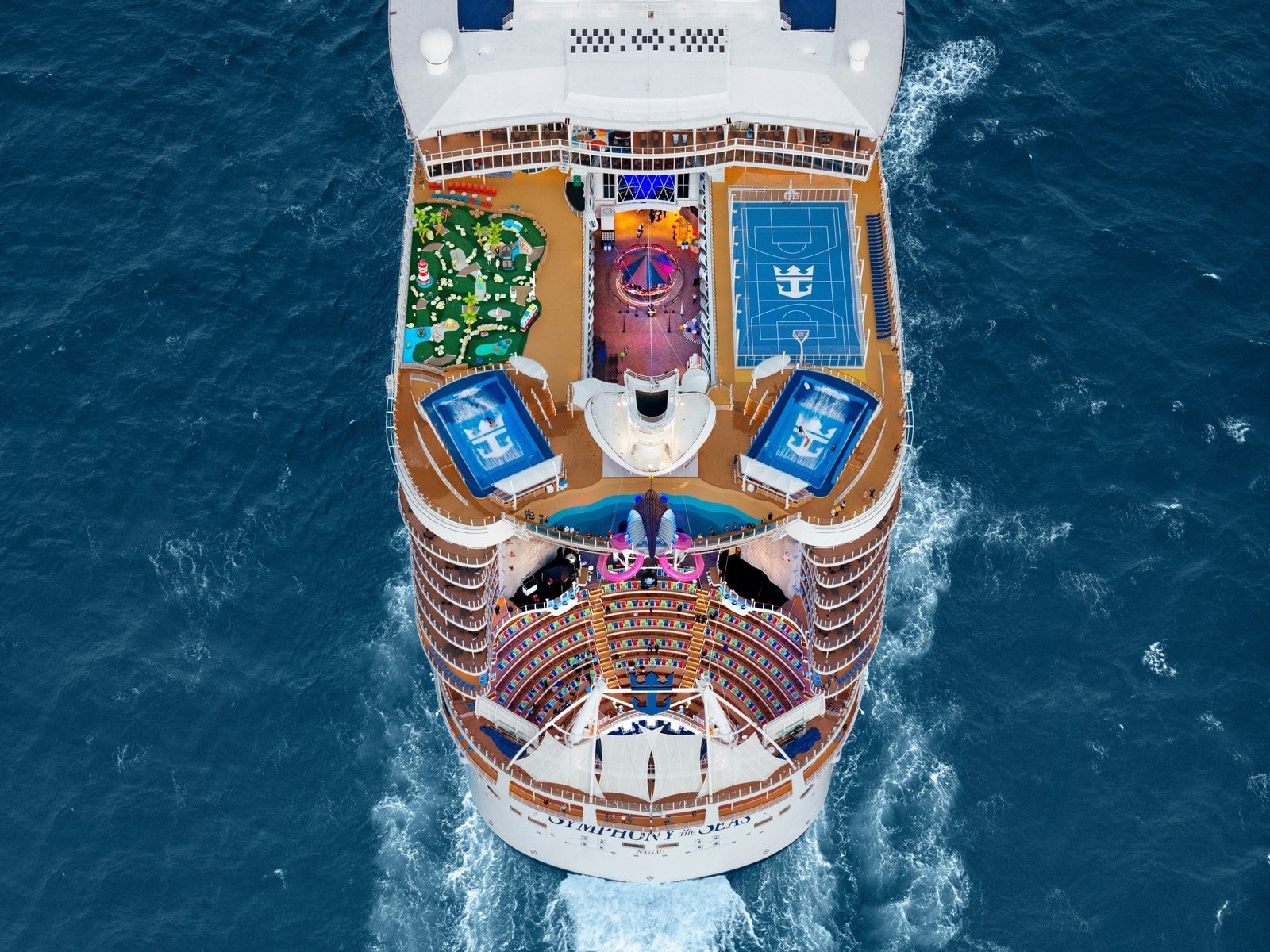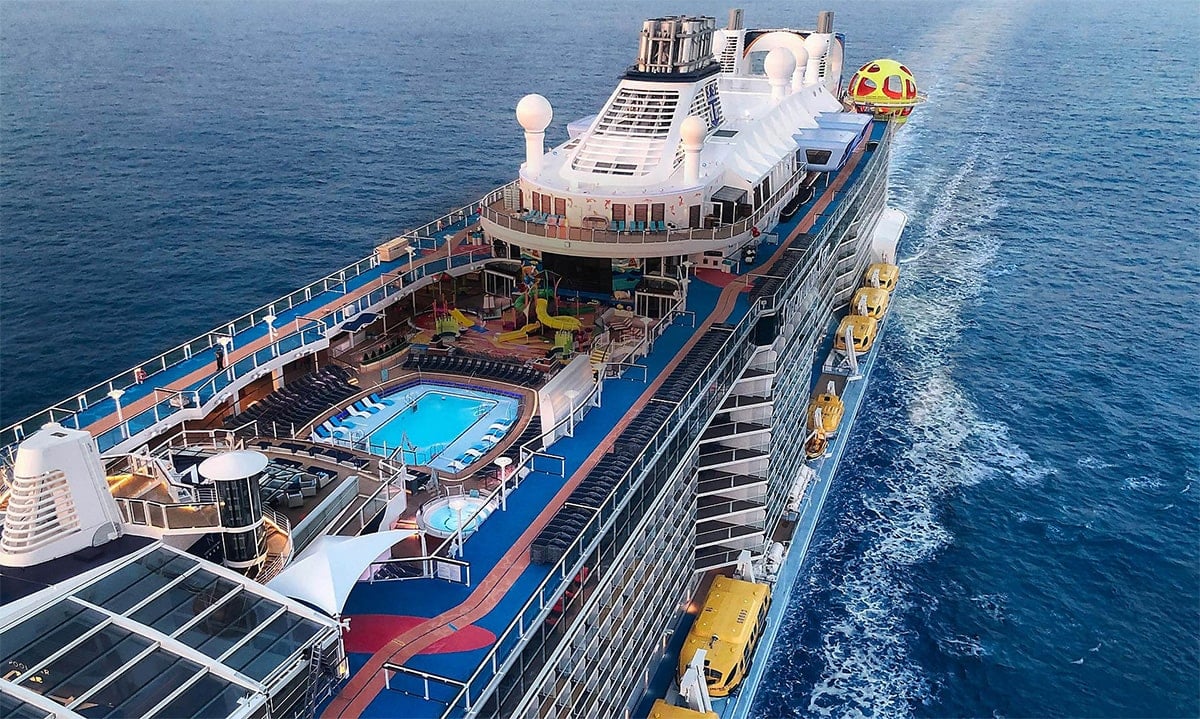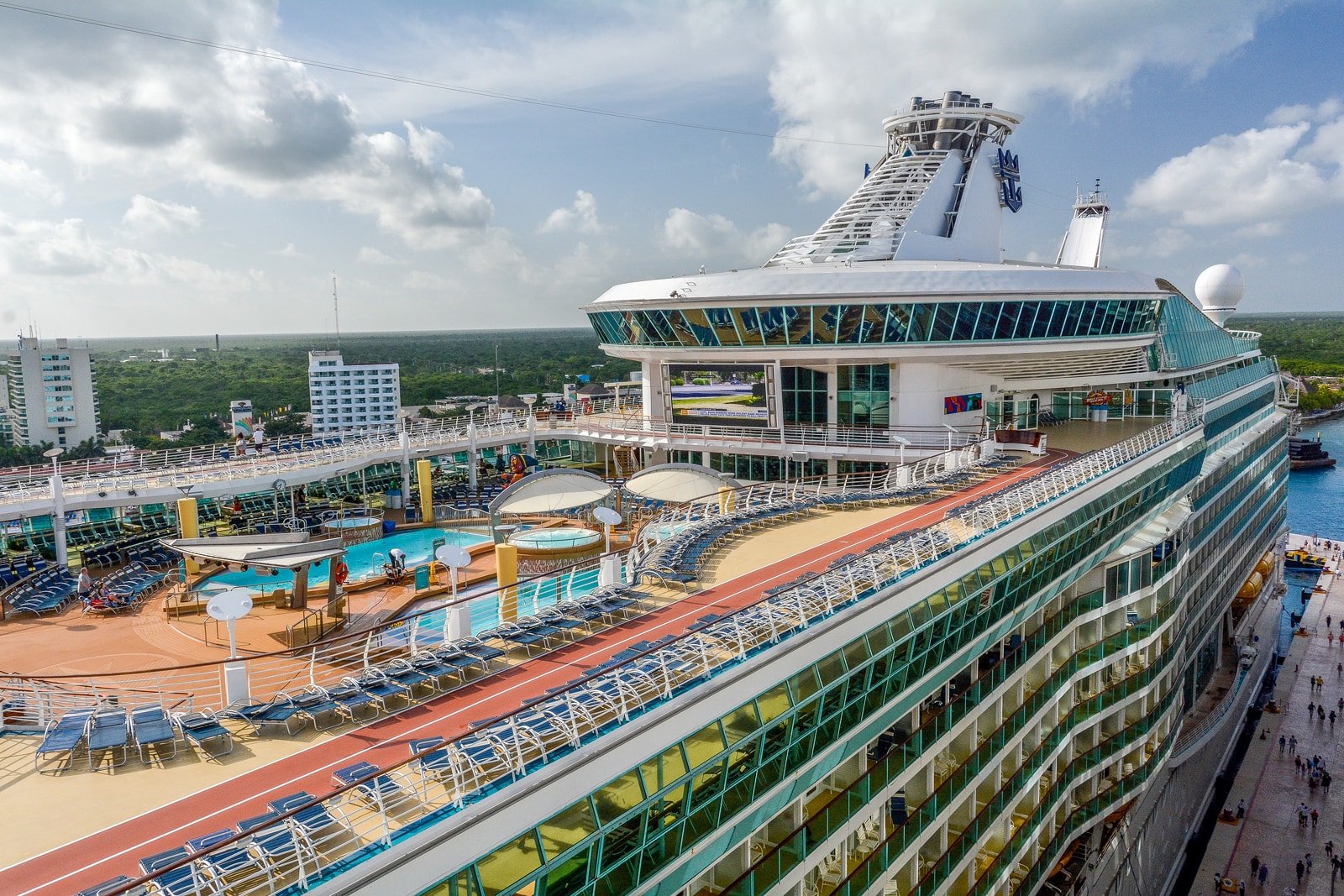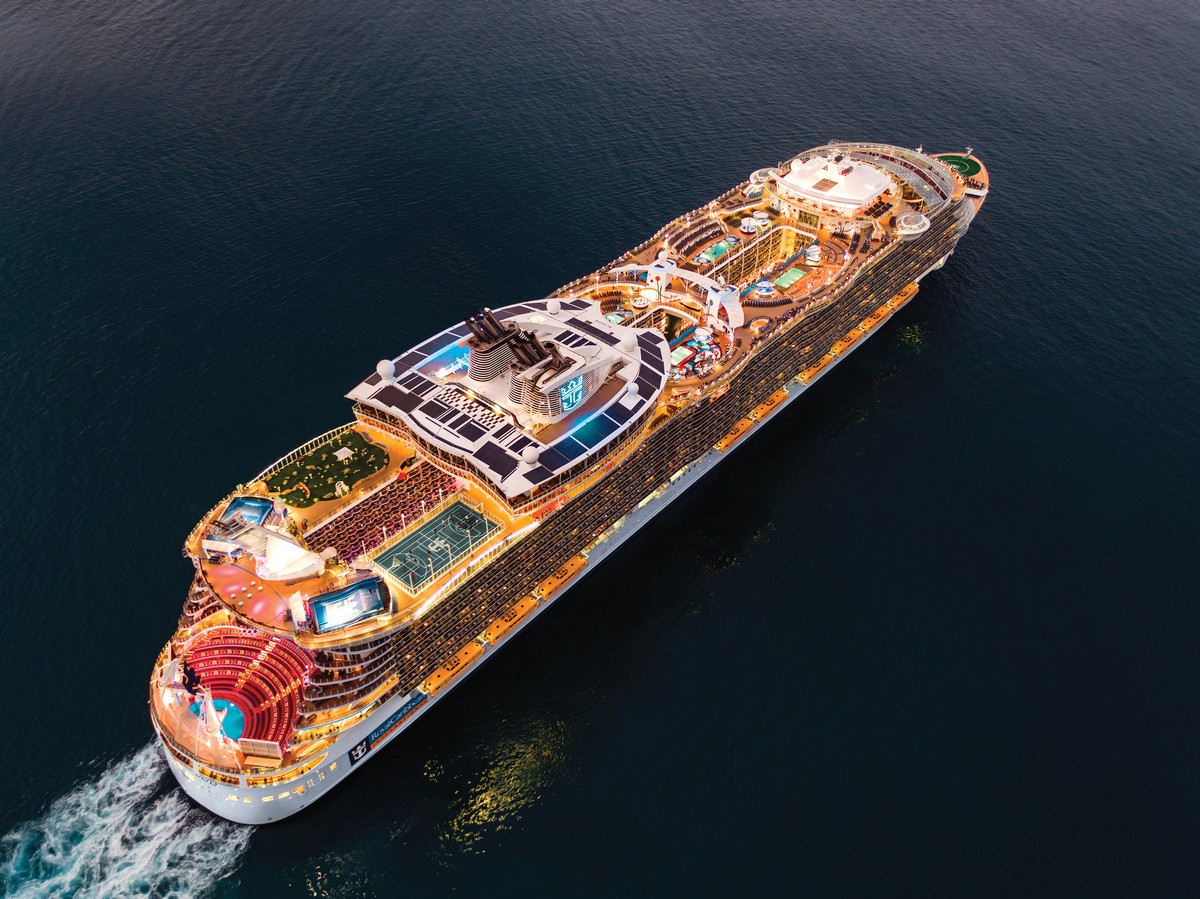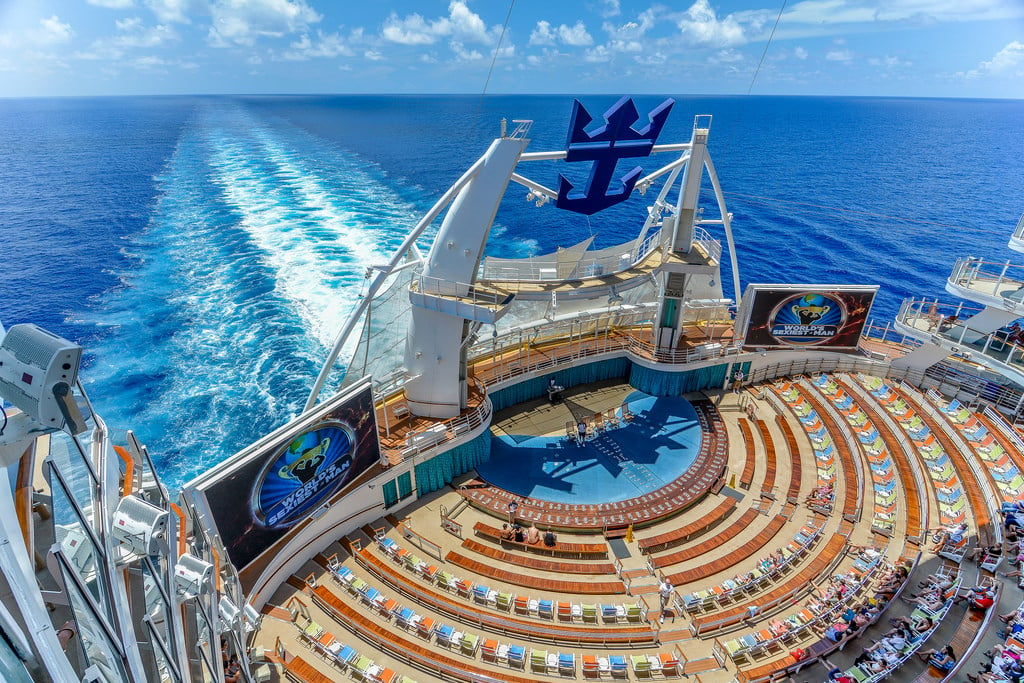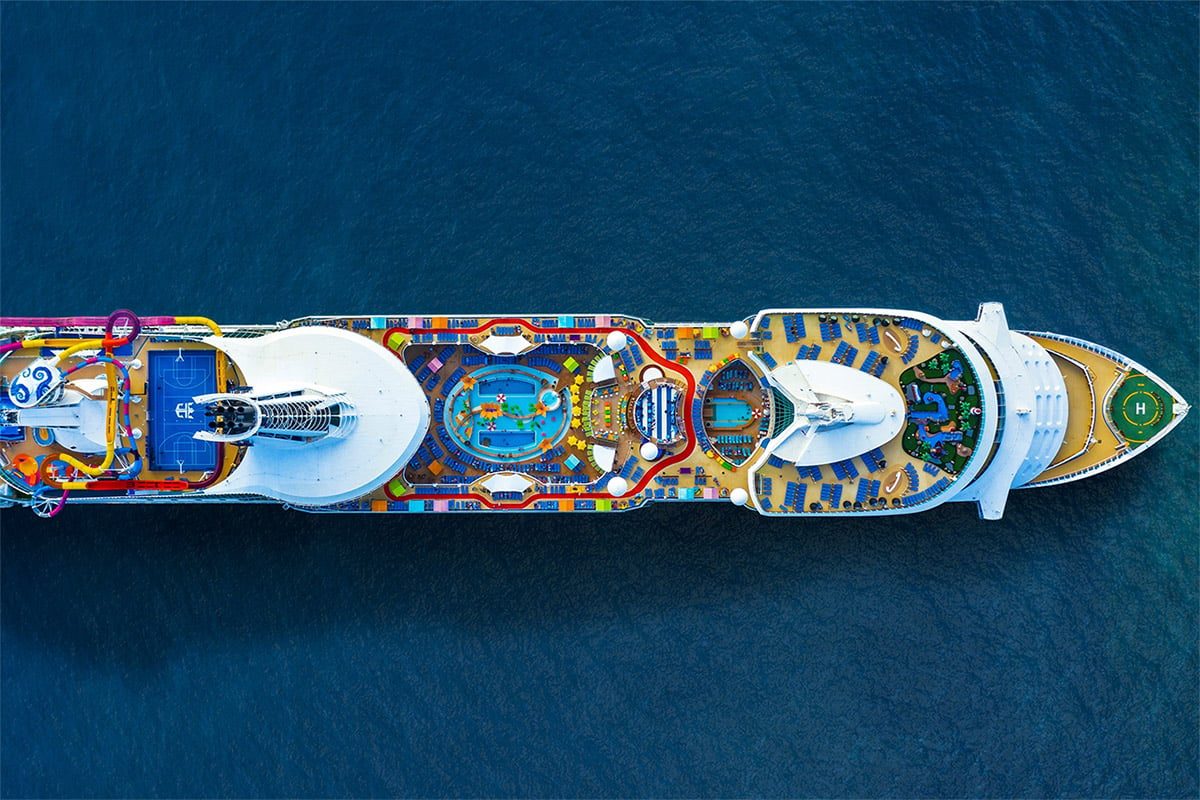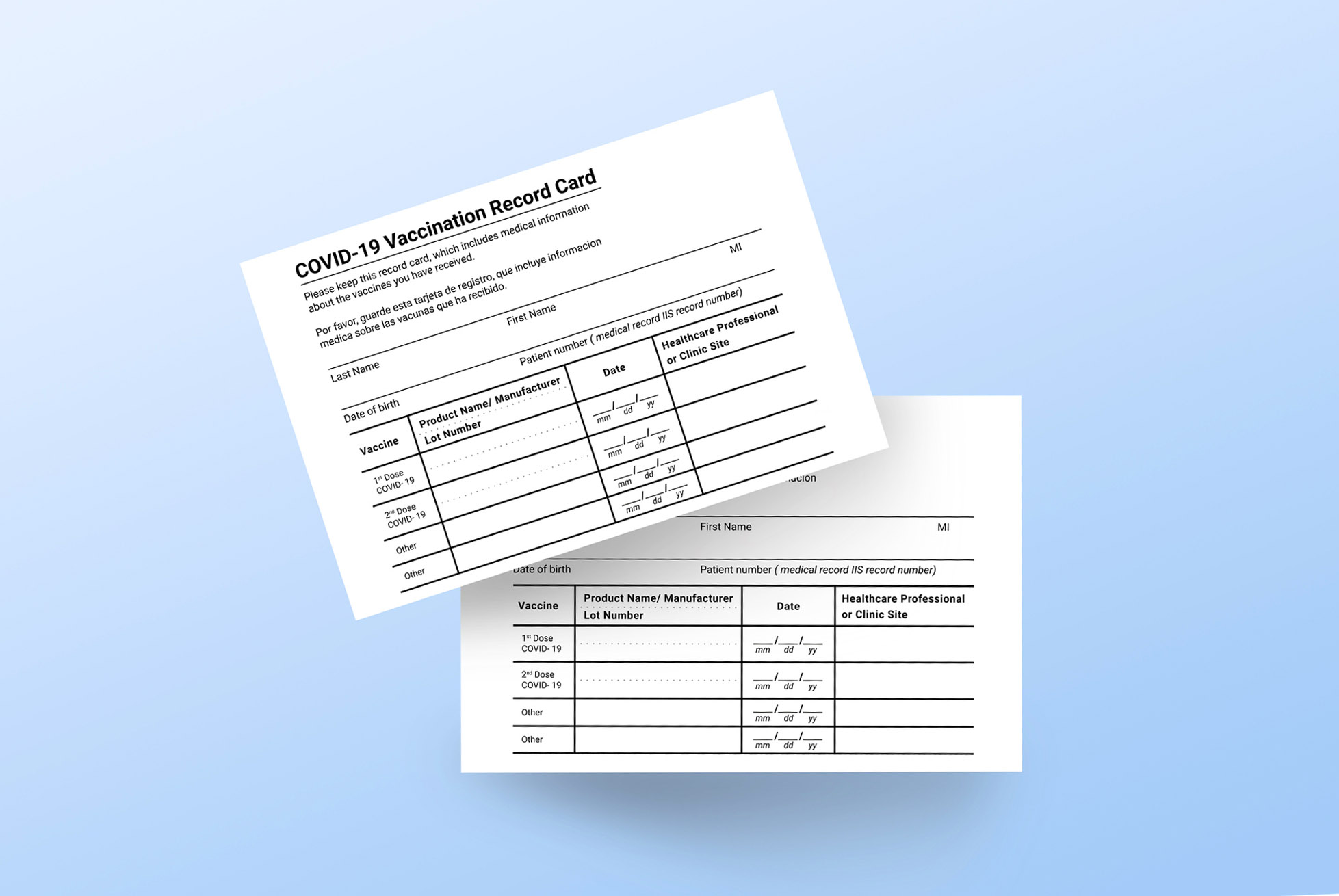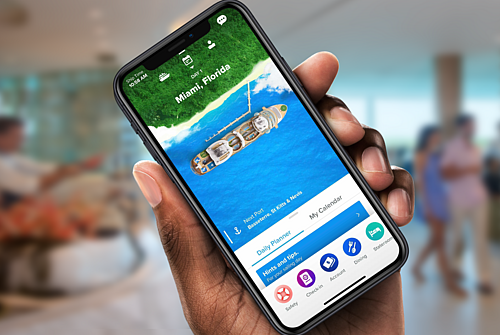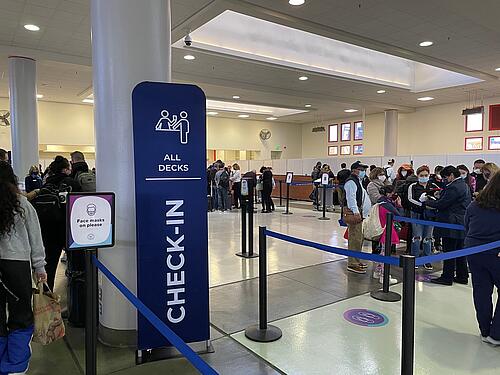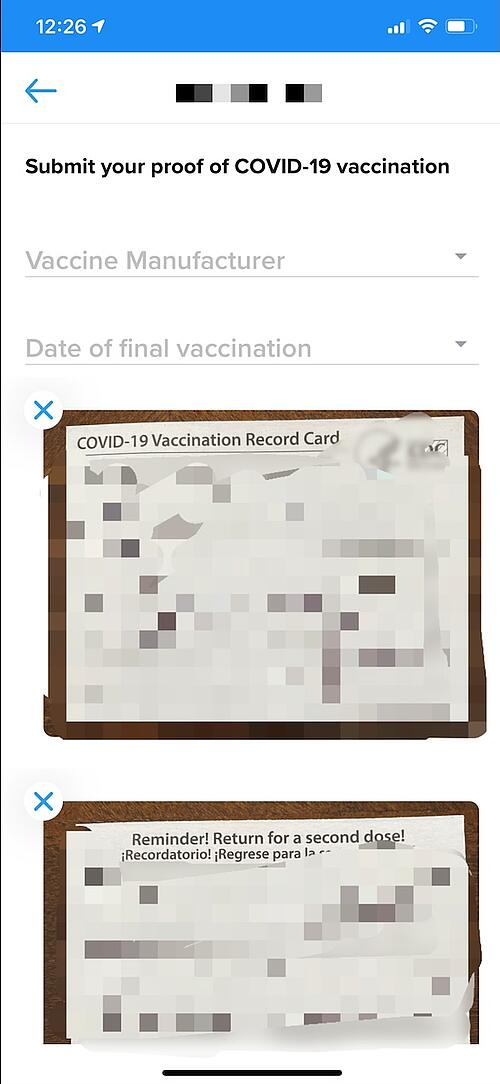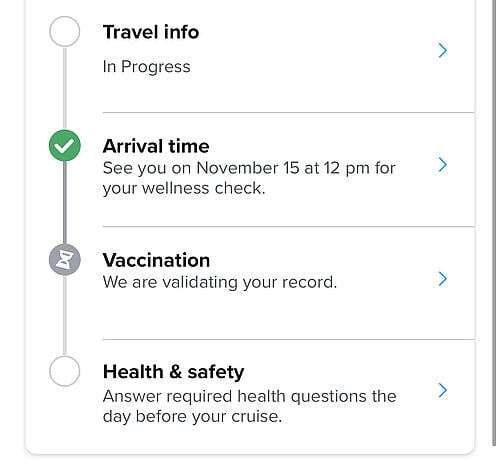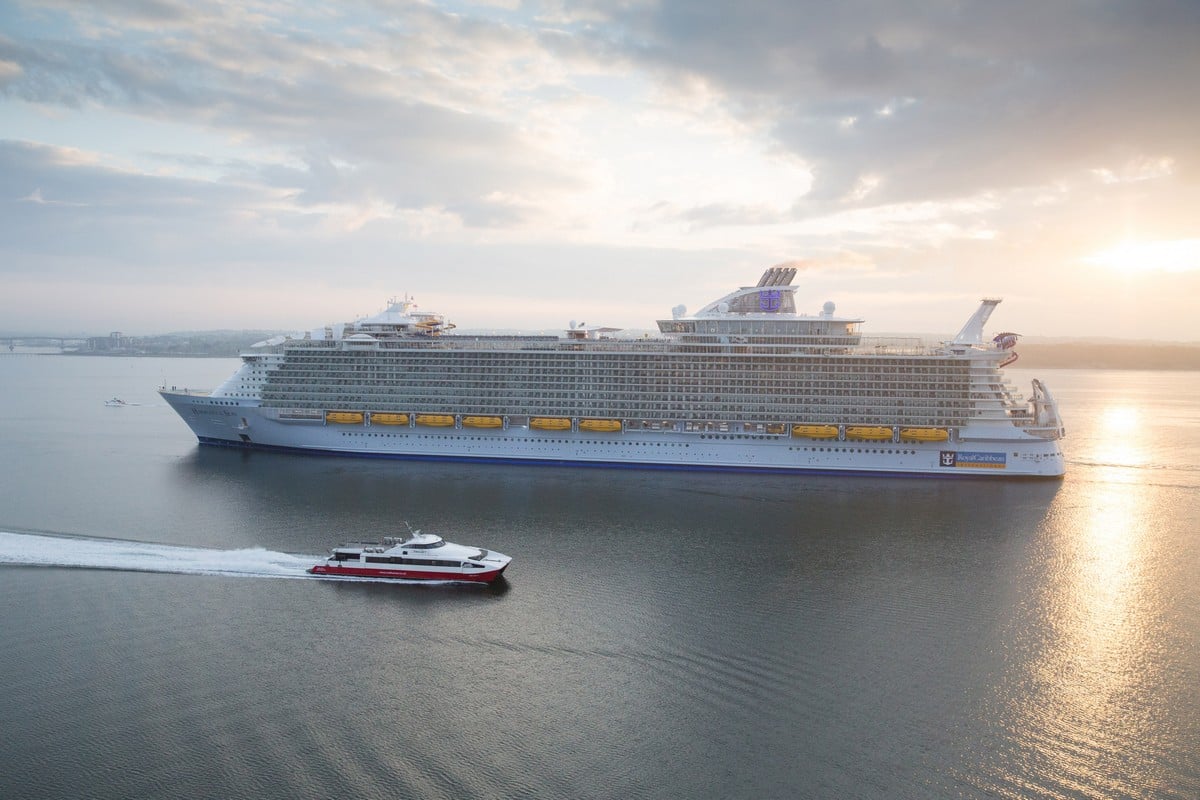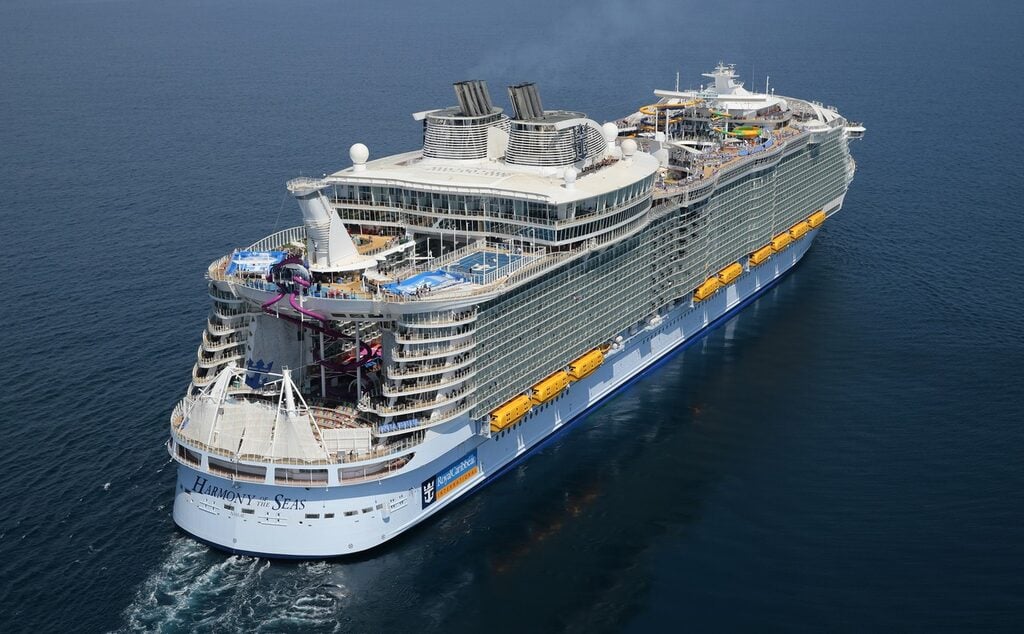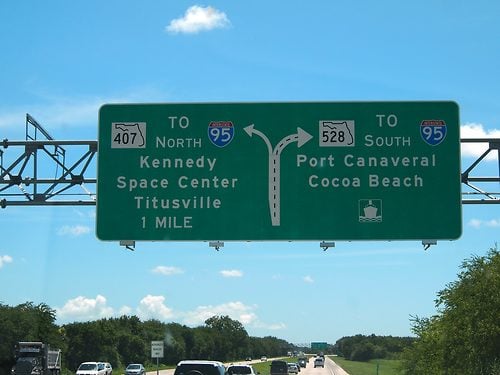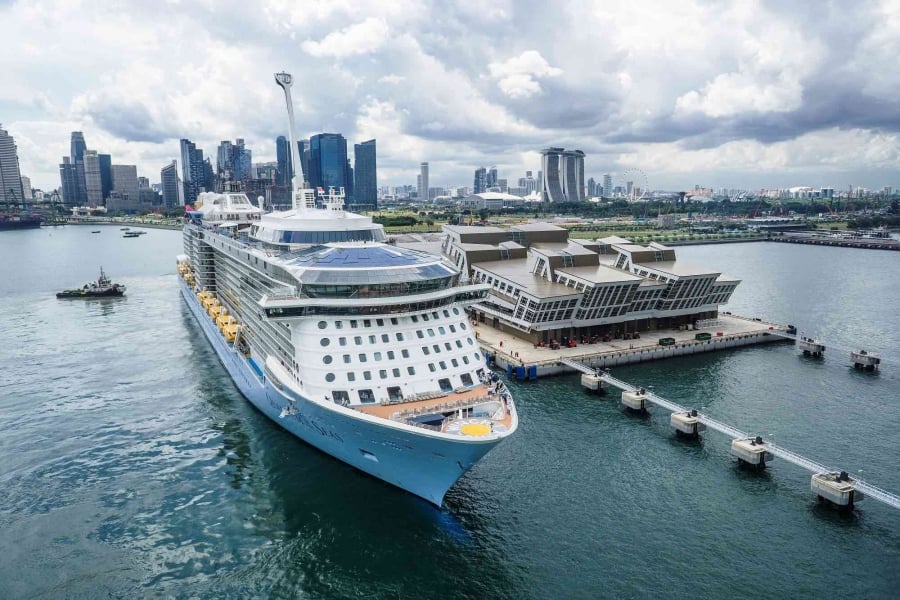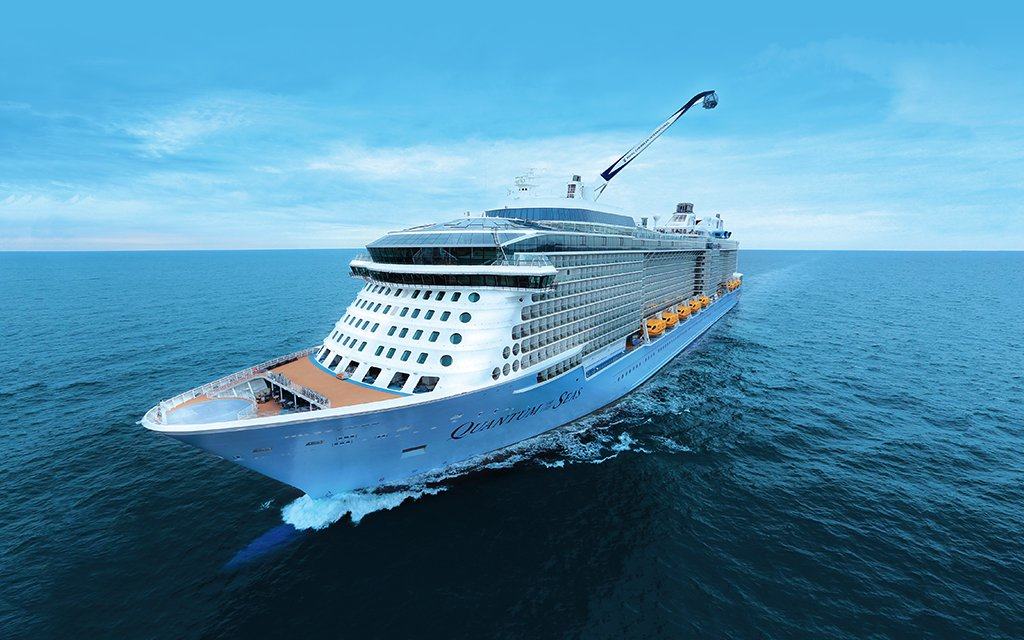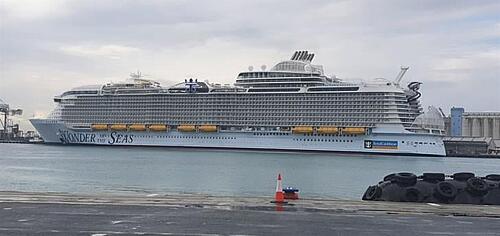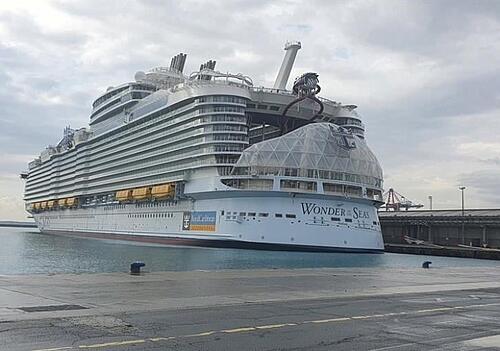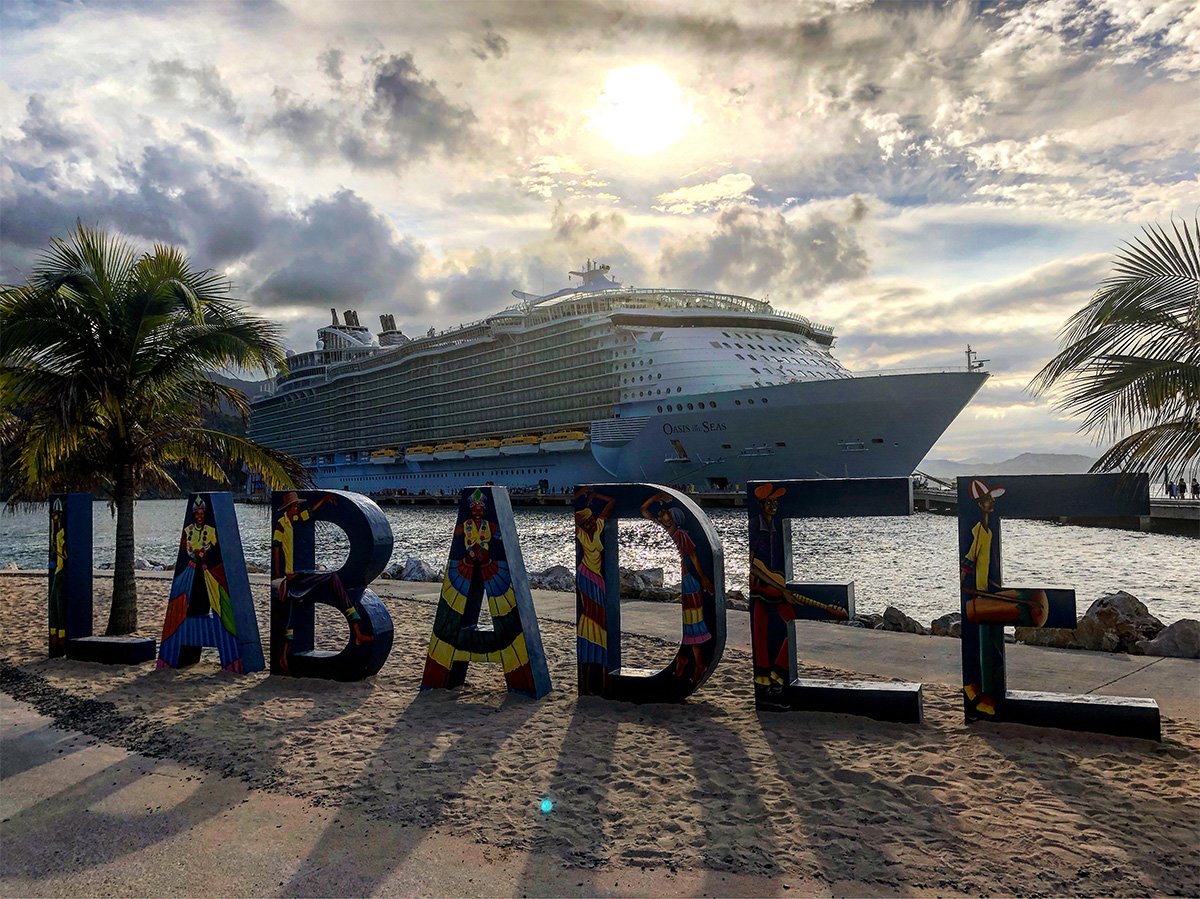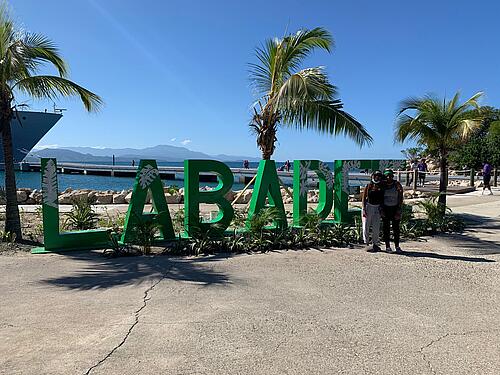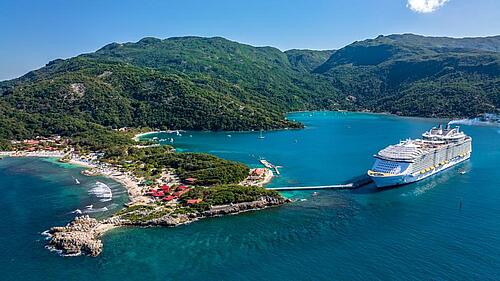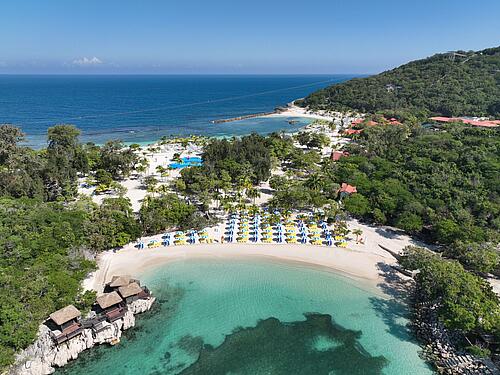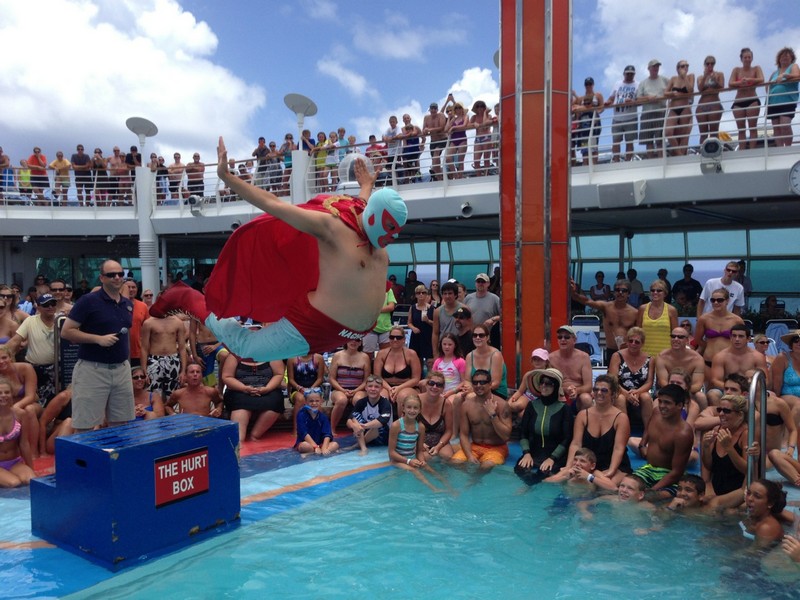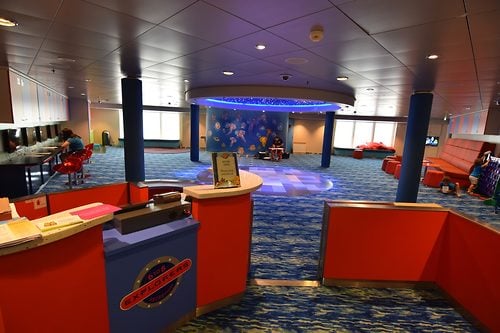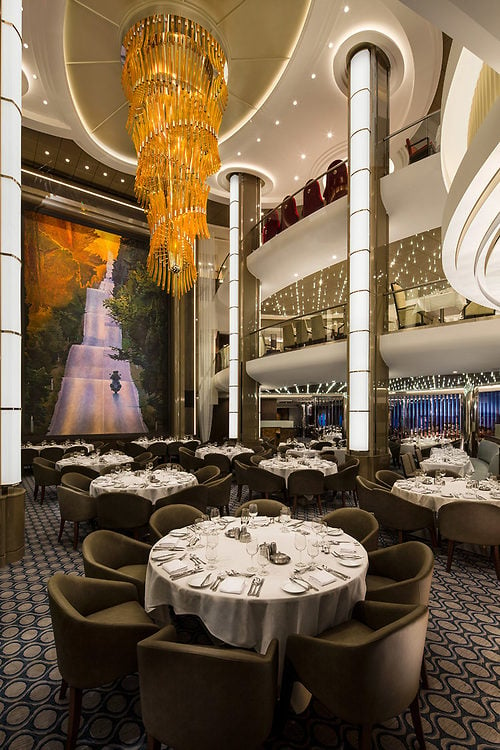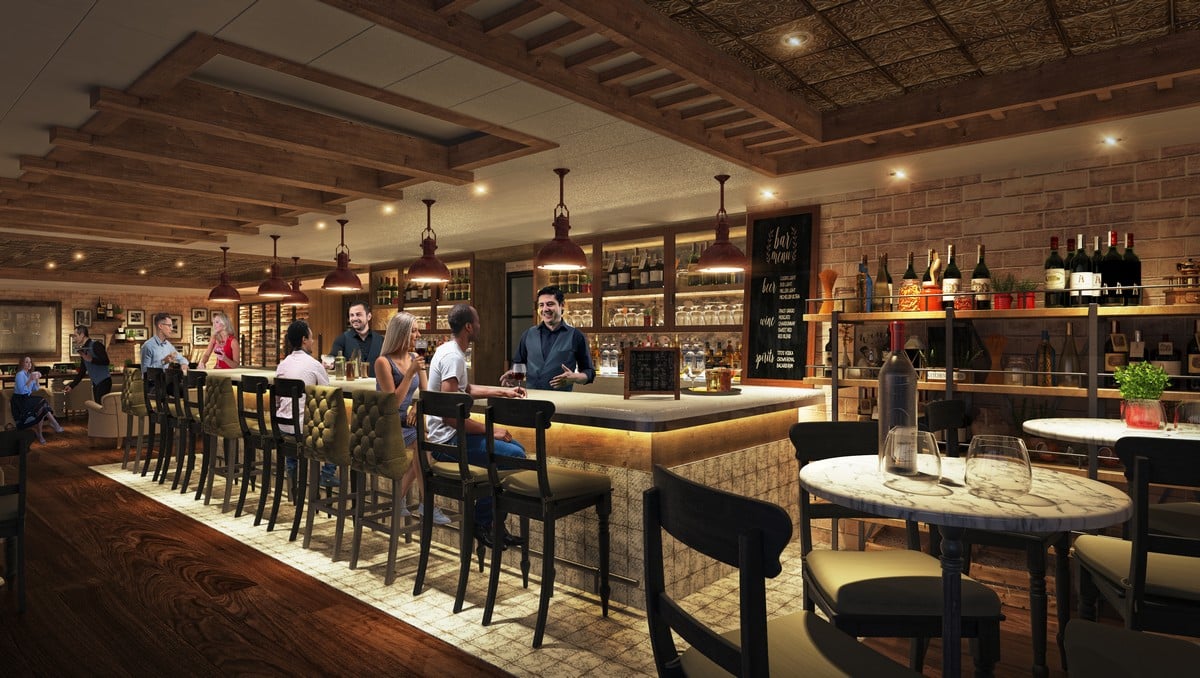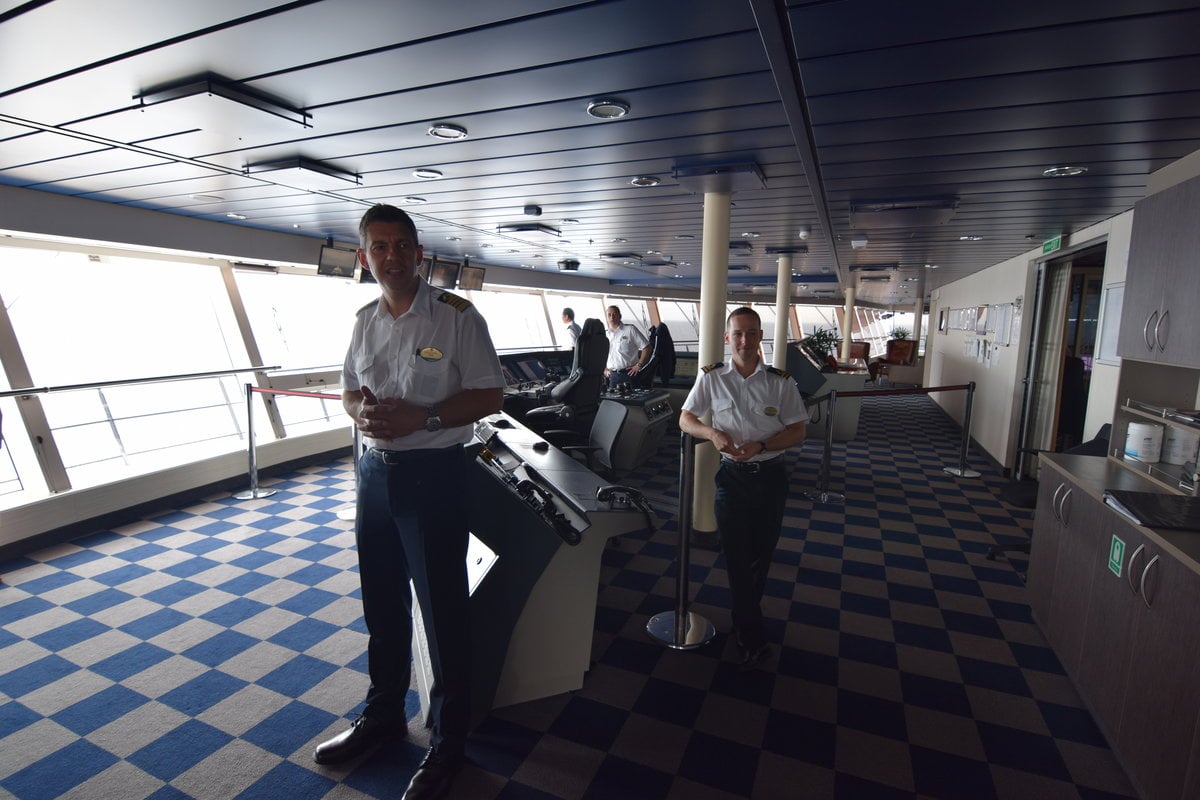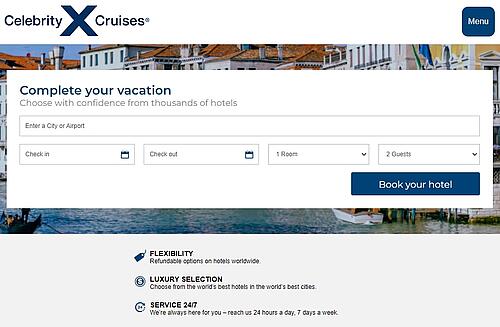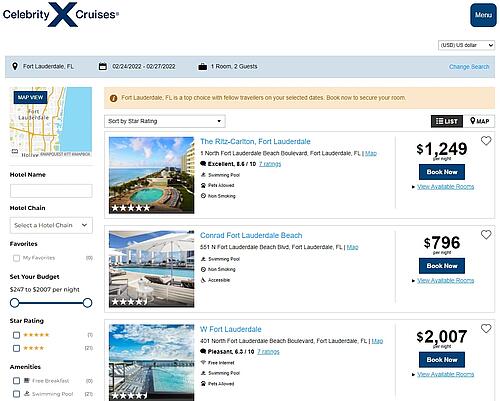Here's everything Royal Caribbean Group said at its Q4 2021 earnings call on Friday, February 4, 2022.
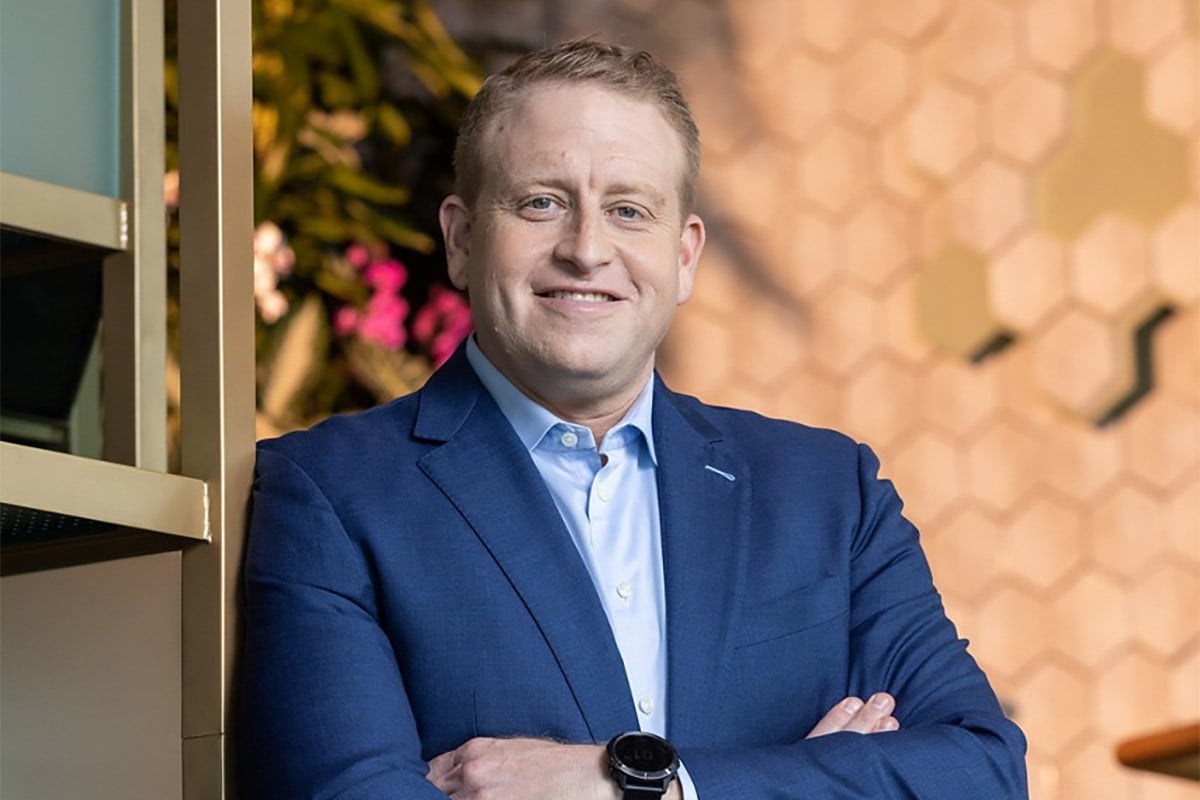
Royal Caribbean Group CEO Jason Liberty, Royal Caribbean Group CFO Naftali Holtz, and Royal Caribbean International President and CEO Michael Bayley spoke with analysts during the company's Q4 2021 earnings call.
Here's a full transcript of their comments and remarks during the hour-long call.
Liberty's opening remarks
Michael McCarthy - Vice President of Investor Relations
Good morning, everyone, and thank you for joining us today for our business update and 4th quarter and full year 2021 financial results earnings call. Joining me here in Miami are Jason Liberty, our Chief Executive Officer; Naftali Holtz, our Chief Financial Officer; and Michael Bayley, President and CEO of Royal Caribbean International.
Before we get started, I'd like to note that we will be making forward looking statements during this call. These statements are based on management's current expectations and are subject to risks and uncertainties. A number of factors could cause actual results to differ materially from our current expectations. Please refer to our earnings release issued this morning, as well as our filings with the SEC for a description of these factors. We do not undertake to update any forward-looking statements as circumstances change. Also, we will be discussing certain non-GAAP financial measures, which are adjusted as defined and a reconciliation of all non-GAAP items can be found on our website and in our earnings release available at www.RCLInvestor.com.
Jason will begin the call by providing a strategic overview and an update on the business. Naftali will follow up with a recap of our 4th quarter and full year results, an update on our latest actions and on the current booking environment. We will then open the call for your questions. With that, I'm pleased to turn the call over to Jason.
Jason Liberty - Chief Executive Officer
Thank you, Michael, and good morning, everyone. I'm pleased to be with all of you today in my new role here at Royal Caribbean Group. I'm very fortunate and humbled to take the helm of this incredible organization, which includes our industry leading brands and the most innovative fleet in the world that is enabled by our incredible people and culture. I'm very much looking forward to building on the company's remarkable legacy and track record in the years ahead.
I also want to congratulate and welcome Naftali as our new CFO. Many of you already know Naft, but for those who don't, I'm confident you'll enjoy working with them.
Our mission at Royal Caribbean has been and continues to be focused simply and completely on delivering every day the very best vacation experience and doing so in a responsible way. It is all inspiring to see our team deliver on our mission each and every day. While 2021 was another challenging year for our company and the industry, it also marked our healthy return to sailing. In just a few short months, and thanks to the incredible preparedness of our operating team and crew throughout the last year and a half, we have brought back more than 85% of our capacity into service and delivered extraordinary vacations and memories to approximately 1.3-million guests. I want to thank the hardworking people, the Royal Caribbean Group, both our crew and our shoreside employees for their incredible efforts to bring back our fleet in such a short window and such a successful way. I am so proud and grateful for their efforts. I also want to thank our guests, travel partners, destination partners, suppliers, investors, and financial partners for their steadfast support.
As we navigate through this black swan event, we have focused intently on a successful, healthy return to service, as you would expect. At the same time, we have been charting our course to get back to pre-COVID performance levels and beyond soonest. The combination of very strong secular and demographic trends, our leading brands, the most innovative and a growing fleet, our global sourcing footprint, a leading technology platform, and the reshaping of our cost structure positions us exceptionally well to accelerate.
Let me focus a moment on our healthy return to service. Since we resumed operations, our goal has been to making cruising one of the safest vacations anywhere in the world while providing an exceptional guest experience. We continue to demonstrate that in a very tangible way. As you heard me say, we have carried approximately 1.3-million guests since the restart, with about 2,500-guests testing positive for COVID-19, a positivity rate of 0.19%. This positivity rate is still a small fraction of what it is in society at large, and nearly all cases on board were asymptomatic or had mild symptoms. Our rigorous health and safety protocols, with 100% vaccination rate among our crew, and close to 100% vaccination rate among our guests, provide a safe environment where we can fulfill our mission of delivering amazing vacations. And our guests are responding by providing record net promoter scores for us exceeding their expectations.
A few weeks ago, the prescriptive CDC conditional sail order expired, demonstrating the agency's confidence in the overall effectiveness of the health and safety protocols of the cruise industry. Our own protocols continue to go above and beyond anything the framework provided and what consumers will find in any hospitality setting. We continue to engage with the CDC and other public health agencies as we look to adjust our COVID-19 risk mitigation measures in response to the changing nature of the virus.
Our healthy return to service plans anticipated twists and turns on our recovery path. We remain nimble in our approach, adjusting to changes in the operating environment, with a constant focus on our long-term strategy and success. As everyone is aware, the Omicron variant has impacted most parts of society as well as our operations. Since mid-December, we experienced an increase in the number of people testing positive for COVID on board our ships. The good news is that in the last several weeks, cases on board our ships have been declining rapidly and we now have returned to exceptionally low pre-Omicron levels. In fact, over the last seven days, we have averaged only a handful of positive guest cases per cruise. With the declining cases, operational challenges are also abating. So, while the variant is not done, it appears that the worst is behind us.
The timing of Omicron was particularly painful as a typical wave booking period begins in early January. So, we do expect it will weigh on our performance in Q1 and to a lesser extent in early Q2. But with the peak of Omicron now seemingly behind us, we have seen meaningful and sequential improvement in the booking activity week over week since the beginning of the year. In fact, in the last week of January, bookings returned to pre-Omicron levels and we except the demand recovery to accelerate as the variant subsides. With that in mind, we have extended our sales and marketing activities for a delayed and extended wave.
While Omicron created some short-term challenges and will likely delay our return to profitability by a few months, our recovery trajectory remains intact. We remain confident that we will have a strong spring and summer season with great demand for cruising both domestically and internationally. The robust secular trends of experiences over things that has propelled our business in the past few years is now recovering towards pre-COVID levels. We have also seen a change in the mindset of consumers coming out of the pandemic with the desire to travel and reengage with the world being stronger than ever. In fact, the U.S. travel organization research confirms that leisure travel will continue to increase at higher levels than business travel. All of this coupled with consumer resilience and easing travel restrictions provides tailwinds for our recovery.
After a storied 2020 and 2021, we are eager to move forward in this new year. As people are keen on taking a vacation, we are ready to make their vacation dreams come true in a healthy and safe environment. We expect 2022 will be a strong transitional year as we bring the rest of our fleet into operations and approach historical occupancy levels. We expect a net loss for the first half of 2022, due to the impact of Omicron, and a return to profitability in the second half of the year.
During 2022, we look forward to welcoming two additional new ships, Wonder of the Seas for Royal Caribbean International and Celebrity Beyond for Celebrity Cruises. These exciting new ships will deliver amazing vacations to our guests and join six other new vessels that have entered our fleet since 2020. This is a key pillar to support our recovery. New hardware is an important driver of quality demand, extraordinary customer experience, and exceptional financial performance. And just as important, it improves our sustainability as these are innovative ships that are much more energy efficient.
We remain focused on continuing to innovate our product and maintain our strong competitive advantage setting the foundation for a strong recovery and long-term profitable growth. During the pandemic, we have had a relentless focus on reshaping our cost structure and rigorous capital allocation framework. We expect that the combination of new ships, growing yields, and higher profitability will propel our financial performance and support our focus to return to pre-COVID financial metrics and beyond soonest.
Corporate stewardship remains another key priority as we continue to progress across environmental, social, and governance focused areas. Climate change and reducing our emissions have been central to our environmental stewardship activities for decades. Last quarter, we announced our comprehensive decarbonization strategy and goals. We realize that the transition to net zero will not be easy and to achieve our ambitions we will rely on our culture of innovation, as well as strong partnerships with governments, suppliers, and shipyards to develop alternative and accessible fuels and technologies.
Additionally, in the past few months, we were named an employer of choice by Forbes and Glass Door. And last week we earned 100% score on the Human Rights Campaign Foundation Corporate Equality Index, which rates corporate policies and practices that relate to LGBTQ+ workplace equality. These are recognitions we're proud of and they reflect our commitment to our employees.
All of this tells you that our business model is incredibly strong, and we have a track record of growing revenue, earnings, and cash flow. Our formula for success is unchanged, recover and grow yields, enhance our margins, profitability, and ROIC. To that, we added returning our balance sheet to pre-COVID levels. We have the best brands in each of our segments, the most innovative fleet in the industry, exclusive destination experiences like perfect day at CocoCay, a nimble and effective global sourcing footprint, a leading technology platform, and most of all, the very best team, both at sea and on land. With that winning formula, I am confident about the recovery and I'm very excited about the future of Royal Caribbean Group.
And with that, I will turn it off to Naftali, Naft.
Naftali Holtz's detail on the quarter
Naftali Holtz - Chief Financial Officer
Thank you, Jason. Before I begin my remarks, I would like to share our energized I am to take on the Chief Financial Officer role. I will focus my energy on continuing the accelerated recovery and returning our performance metrics to pre-COVID levels as soon as possible, while positioning the company for long term success.
I will now turn to discuss our results for the 4th quarter and full year 2021. This morning we reported an adjusted net loss of $1.2-billion for the 4th quarter and $4.8-billion for the full year. It is important to note the Q4 results were better than our internal expectations, mainly due to continued strong onboard revenue performance and better cost management.
The financial results for 2021 reflect the impact from the suspension of sailing in the first half of the year and the tremendous effort to resume cruise operations and accelerate the flywheel in the 2nd half. In the 4th quarter, we continued our return, bringing 12 more ships back into operations, building the load factors, and restarting our sales and marketing efforts. This was all to position the company for a successful 2022.
Load factors for the quarter were 65% on core itineraries with month over month improvements. We are incredibly pleased with the progress we have made in the 4th quarter. Our total load factors grew from 36% in Q3 to close to 60% in Q4. In addition, the continued strong onboard revenue contributed to a 10% increase in total gross revenue per passenger cruise day compared to the 4th quarter of 2019. Cash flow from operating ships turned positive in the 4th quarter.
Now I would like to discuss capacity and load factor expectations over the coming period. The Omicron variant caused short term disruptions to the travel industry as well as our operations. As Jason just mentioned, our focus, since we restarted operations, has been to ensure the health and safety of our guests and crew, matching or exceeding guests vacation experience expectations, and bringing the fleet up in a financially prudent way. With that in mind, we made the decision to cancel several sailings in the 1st quarter. We plan to operate about 7.7-million APCDs in Q1, or approximately 95% of our planned capacity. We expect that operating ships in the 1st quarter will be cash flow positive.
Our capacity will further increase at the end of the quarter following the delivery of the incredible Wonder of the Seas. Wonder will be introduced to the U.S. market in March before heading to the Mediterranean for the summer season. Due to the impact from Omicron, our near-term bookings and cancellations, we expect load factors of approximately 60% on core itineraries in Q1, with month over month improvement within the quarter.
We also expect to bring the rest of our fleet back to service in time for the lucrative summer season. We expect our load factors to continue to steadily increase month over month and approach historical levels in the 3 rd quarter. While we offer cruises in the vast majority of our key destinations, we continue to closely monitor both China and Australia. We anticipate Australia to open for cruising for its summer season, our wintertime. With respect to China, it remains closed for cruising, and we have redeployed the remaining two ships planned in 2022 to other key markets. We remain optimistic that we can capture long term growth opportunities in the China market.
Shifting to our balance sheet. We ended the year with 3.5-billion dollars in liquidity, excluding the 1-billion dollar issuance we completed in early January. We have ample liquidity to allow us to continue our recovery trajectory. During 2021, we focused on managing and improving our balance sheet. We reestablished access to the unsecured debt markets and successfully refinanced 2.3-billion dollars of secured or guaranteed high coupon debt. Our plan is to continue with these balance sheet improvement efforts throughout 2022.
In early January, we issued 1-billion dollars at 5.38% coupon, and we plan to use the proceeds to refinance near term debt. In addition, we have taken and continue to take numerous actions to reshape our cost structure with a focus on further improving our leading pre-COVID margins. While these actions will improve our cost structure and margin profile, we do anticipate that inflationary pressures and some transitory costs related to our healthy return to service will weigh on this year's earnings.
Now I'll provide an update on the demand environment and our 2022 sailings. For the last several quarters, we have seen new bookings improve from one quarter to the next. Bookings in the 4th quarter continued this positive trajectory, culminating in our biggest ever Black Friday and Cyber Weekend from the U.S. Bookings in the 4th quarter were up more than 75% compared to the 3rd quarter. As we restarted our brand marketing programs in Q4, we generated strong demand to support the Book of Business for ‘22 and ’23. As the Omicron variant began spreading in December, we experienced slower booking activity and higher near-term cancellations over the holiday period, as many guests were testing positive before their cruise. But from the beginning of the year, we have seen meaningful week over week improvement in booking activity for both the first and the second half of ‘22. Second half booking activity has been recovering at a faster pace. In addition to that, we have seen a rapid improvement in cancellations over the same period.
Similar to our experience with the Delta variant, as Omicron cases are beginning to decline, booking activity has begun to pick up. In fact, in the last week of January, bookings have returned to pre-Omicron levels. The U.K., which is further ahead on the Omicron curve, has been on that improvement trajectory for several weeks. From an accumulative booking standpoint, our booked load factors for sailings in the 2nd half of this year remain within historical ranges at higher prices, both with and without the impact of FCCs.
Load factors in the 1st half are below historical ranges as expected, but are aligned with our anticipated load factors.
Our customer deposit balance as of December 31st was 3.2-billion dollars, an improvement of about 400-million over the past quarter despite the quarter over quarter increase in cancellations related to Omicron and significant revenue recognition, both of which reduced the customer deposit balance. Our customer deposit balance is only 5% lower than it was at the end of December 2019, with the entire difference driven by the 1 st quarter sailings, where we have less capacity. Our customer deposit balance related to bookings for Q2 forward sailings is higher than at the same time in 2019. Approximately 32% of our customer deposit balance is related to future cruise credits. Of the FCCs, approximately 50% have been redeemed thus far.
Lastly, turning to the outlook for 2022. Given the progress we have made, ramping up operations, and everything I said about the booking environment, the costs, and the impact of the Omicron variant, we still expect to reach positive EBITDA and operating cash flow in late spring. We expect a net loss for the first half of 2022 and a profit for the second half of the year.
With that, I will ask our operator to open the call for a question and answer session.
Analyst questions
Robin Farley from UBS asking questions.
--that expected that new wave season volumes, you know, are lower than historic. But I think still positive to see that your historic load in the second half is still above. I think there had been some concern that maybe the historic load would have fallen below given how slowly the first month of wave is. I guess, I wonder if you could give us a little bit of quantification on, do you expect, even with this sort of maybe later start to wave because the Omicron disruption-- Do you still expect load factors in the second half, you know, if we move at the rate we are going through the next month to still be ahead of historic, or within historic ranges?
Jason: Robin, I'll start off in and of course, good morning, good to talk to you. I think the first point I would make is while Omicron was certainly impacting our bookings and impacting our cancellation, they really was focused on the 1st quarter and a little bit of the 2 nd quarter. We didn't really see too much of an impact in terms of demand, as related for, call it, June on in the year. And I think that, you know, just talked to the consumer psyche and just concerned around Omicron in itself and the timing of all of that. So, I think we remain confident and based off the booking activities that we've seen that, you know, the back half of the year is going to look like what we had expected it to. And that includes on our expectations on a load factor standpoint.
Robin: Okay, great, thank you. And I do have a follow up. But I should have said congrats, by the way, to you and Naftali both in your new roles. I should have started that way, sorry.
And then, for the follow up, it’s about FCCs. I didn't know if you had said 50% was redeemed or 15%, I just wanted to clarify. But the real question was on FCCs, it seems like a fair amount, I know people think about what the represents as a percent discount to booked price, but is it fair to say that a lot of your FCCs at this point are not the bonus FCCs that represent a discount but that are just dollar amounts that somebody reschedule their cruise or canceled and moved to a later date? In other words, what you talk about is being FCC does not automatically mean that that represents a discounted FCC? I don’t know if you can clarify that, thanks.
Jason: Yeah, I mean, I think that's right. I think that most of the FCC application are what we call our lift and shift program. The balance of that would be the FCCs in which, you know, they had the 25% of value to them. And I think that program in general has been working relatively well. And for the most part, our guests, you know, they want to go on their vacations. They want to typically go around the same time that they were planning on going and they're just lifting and they're shifting that to periods of time that are in the same zone of when they were planning on vacationing before, just a year later or a quarter later, etc.
Naftali: And Robin, just to answer your question, it is 5-0, 50%. And we're very pleased with that. And we've seen progress in the last quarter, both redemptions, as well as just new bookings.
Robin: Great. Thank you very much.
Moderator: Your next question is from Steve Lasensky of Stifel.
Steve Lasensky: Hey, guys, good morning. I'm going to start with a quasi-guidance question, I'm not sure you'll answer it or not. But I understand that you are not giving guidance for the year but last quarter you talked about being earnings positive for the full year. Now you're saying first half still will be generating losses back half of the year going positive. So, you know, I guess the question is, do you still think it's possible for the full year to wind up being positive, even with all the variant headwinds that have occurred so far? And the, the second part of that question is, did you guys contemplate or are still contemplating helping us think about the long-term prospects for this business over the long term? Whether that's long-term guidance or targets or stuff like that?
Jason: So, on the first question, Steve, and good morning. I would say that we are not an organization that gives up based off of an event like Omicron. So, we are kind of taking all efforts to ensure that we maximize our profitability here each and every quarter and each and every year. Omicron certainly will weigh in here heavily on the 1st quarter and a little bit of the of the beginning of the 2nd quarter. But a lot of it will be as bookings start to come in, how can we improve on the 1 st quarter and the 2nd quarter? And that will kind of dictate whether we are positive or negative on the earnings side. We're focused on it. But there certainly has been pain. I mean, the cancellations of those 50-plus sailings weigh pretty heavily onto the 1st quarter on a profitability standpoint. So, that's kind of the answer to question one.
On question two, we are certainly looking past COVID. We believe we are past, you know, COVID in terms of the overall impacts on our business and we're focused on our healthy return to service. And the great, as I said in my comments, you know, this is a great business with great brands and great ships. And as we get our load factors up to historical levels and we start getting to predictable quarters and patterns, I do believe we will come out and provide long-term programs and metrics as it relates to the overall business. I feel good about that, but I think we're going to wait until we're in a little bit more of a predictable state and our quarters are predictable before providing that guidance.
Steve: Okay, gotcha. Thanks for that, Jason. And then second question, how do you guys think about changing COVID mandates on board? And I guess what I mean by that is, you know, I assume there are folks out there that still don't want to cruise either because of testing or mask mandates and are waiting for those to be removed or eliminated. So, what are you guys watching or what do you think will give you the confidence to start removing some of those mandates? And what do you think that would ultimately do to bookings and demand
Michael: Hey, Steve. Yeah, I mean, obviously, that's a consideration in terms of the protocols that we have in place and how the customer perceives that. I mean, in many ways, the customer is perceived as a positive, you know, during the time of COVID. But obviously, I think we believe and what we see now is that many destinations and countries are beginning to ease some of these restrictions. And the belief is that we're going to start moving to a new normal. And we've seen now with the U.K., for example, where Brits returning to the U.K. do not require testing. There are effectively almost no protocols for them to return home. I think last week, also Denmark and Sweden are following the same kind of path. And we believe that we'll see more and more of this over the coming weeks.
Certainly, we see now with Omicron that the decrease in positivity is really significant, not only in the U.S. and certain states, but also on board of our ships. And we believe that we're going to move into a much more positive environment. I think what we'll see is as we get into that environment, we'll start again working with the CDC, we will start removing many of the protocols that exist today, and it'll become easier and simpler for our customers.
Just as a point of reference, around 10-million customers visit our Royal Caribbean International website every month. And around 400,000 or so visit our Healthy Sail Section of that. And you can see as people's anxiety either raises or decreases, then obviously that number raises and decreases. So, we're feeling quite positive about where we're going with this. We also believe that in the not too distant future, the CDC level four will be downgraded to level three, and I think that will also be another positive step in the right direction.
Jason: And Steve, I'll just add, I mean, as you know this because we say it quite frequently, the health and safety of our guests and our crew are our number one priority. So, a lot of this is, we're following the science and the protocols that we have in place are well beyond what has been asked upon by the CDC and the CSO or by others. So, we're following the science and based off of that we are making changes to our protocols again to kind of help ensure that our guests and our crew are safe at all times.
Michael: That's great color. Thanks, guys. Really appreciate it.
Moderator: Your next question is from Andrew Didora of Bank of America.
Andrew: Hi, good morning, everyone. This is for Naftali or Jason, your marketing G&A spend were at record levels in 4Q. We clearly knew your marketing spend was going to be higher given the restart. But when we think about the Omicron impact and sort of the delay we've seen here, does that mean these costs will stay elevated in the first half of 2022? Is there any color that you can provide in terms of the cadence there? I think it will be helpful.
Jason: Yes, thanks Andrew. So, as you noted, after quite a while started our brand marketing efforts in Q4, and that's why you see that elevated. We've seen very good receptivity to those and generated really strong demand that cultivated into the bookings we’ve seen. As Omicron started spreading, we’ve really thought thoughtfully about how we are going to spend the sales and marketing. Also, we are within the typical wave season. So, we are thinking about that, and we will continue to adjust. We will eventually go back to what you would think as a more of a historical range.
Naftali: Yeah, I think that's a key point. But our behavior in terms of our marketing activities and so forth, as well as how we're going to market is actually very similar to how we were pre-COVID. And that kind of that pattern and tempo is what you should be kind of thinking about as you are considering your modeling and so forth. You know, just be mindful, you know, we have more capacity than we did in 2019. But I would just kind of make that point that you should expect us to kind of return to typical behavior.
Andrew: Okay, got it. And then my follow up question, you know, certainly appreciate you wanting to wait to give long-term guidance until there's just a bit more clarity on, you know, probably on the revenue side. I would think you have a little bit more kind of more clarify on your cost situation, particularly as all your ships kind of return to service here. So, I know there have been some puts and takes stirring during the pandemic in terms of taking costs out of the system and then there is just general inflation in the market. Can you help us think about where your unit cost x fuel could be relative to 2019 as you begin to get back to the full utilization of your fleet?
Jason: Well, I will just start off and Naft can certainly jump in here. As you start considering the transitory costs, which will evaporate here, we were hoping here in 2022. You know, the efforts we've made around cost is for our cost per APCD, to get more efficient, for us to gain more margin here here over time. So, a lot of the things as you look at our cost per quarter and saying, “Well, where are these cost savings?” A lot of that is being absorbed by short term transitory costs and also being absorbed by what we believe to be some of the short-term inflationary elements in food, as an example, that we think we will be able to effectively manage.
Naftali: And just to add that, you know, we also have six new ships that have joined a fleet since 2019, in addition to the cost focus that we've had in reshaping our structure as we had in the last couple of years. So, as the fleet comes back and the load factors build up, we are very well positioned to perform and improve margins.
Andrew: Sorry, just one last follow up there, do you think your longer term kind of non-fuel unit cost can get back to pre-pandemic levels?
Jason & Naftali: We do.
Andrew: Thank you.
Moderator: Your next question is from Ben Chaiken of Credit Suisse.
Ben: Hey, how's it going? You guys talk about load factors being in line with pre-COVID, I think 3rd quarter ’22. Just to pick that apart, did you say in 3Q, you'd reach normal or 3Q for the course, I know this is a little bit in the-- Or 3Q should be normal? And then, just one follow up.
Naftali: In Q3.
Ben: Okay. And I guess, with that in mind, can you help us with the thought process or data points you are looking at to make you comfortable with that assumption? Is it simply the pace of bookings? Is there any way to approximate like how booked you are currently on a percentage basis for 3Q sailings, for example?
Jason: Yeah, well obviously we know those numbers very closely. But it’s not something that we typically are going to be guiding on at this point. But what brings us the confidence and whether it was Naft’s commentary around the customer deposits in the back half of the year, especially for Q3 relative to 2019, the booking activities that we've seen is what provides us confidence that we're going to return to those historical load factors. So, it’s not based off of hope, it’s based off of the patterns that we are seeing today that is our best perspective on the patterns that are going to continue on.
Ben: That’s really helpful. And then just one more on onboard spend, which has been particularly strong. Do you think part of this is to do with like the ships having lower occupancy so there's more opportunities to spend and not wait in line? I'm kind of making that up or is it some pent-up demand or is it a change in how people are booking packages? Could you just help us think about how you guys view this strength and how it should persist in the back half of ’22?
Michael: Hi, Ben, it’s Michael. I wish we knew. I can tell you that we've been absolutely delighted and initially very surprised by the onboard spend. But I think when we started operations out of the U.S. back in July, we were initially just shocked. It was really, really positive and it's just continued. So, I think it’s, you are probably not far wrong that I think lower load factors create a different kind of environment that help people spend more. But we've seen it across the board in nearly every single category where people are just simply spending more in every single revenue stream. We also really pleased with what we've seen with our investment in the pre-cruise technology that's really starting to come online over the past 12-months. And the pre-cruise penetration is significantly higher than it’s ever been before. So, we’re in a very positive environment. We know back in ’20 and ’21, the savings rate was significantly higher and credit card debt was much lower. So, we do think that people are happy. We’ve seen the net promotor score on all of our ships and brands being at records highs. So, we’ve got a lot of happy customers in that happy frame of mind opening up their wallets and spending literally all over the place. So, we are very pleased with what we are seeing.
Jason: I think to just add a little bit more color on to it, when Michael talks about categories, I think it is in two dimensions. Whether it's the consumer that is booking the inside state room or the consumer booking the ultimate family suite as an example, you're seeing them all over index on their historical spend by quite a bit.
And then the other dimension of the category is by area, effectively every revenue area, whether that's spa, whether that's gift shop, whether that's casino, F&B, and so forth, it is just outperforming significantly. I don't know how much of its volume, how much of its mix, how much of it is just the consumer with more money in their pocket, how much of it just-- [no audio 37:56 - 38:16]
Ben: --pre-cruise penetration, does that mean like offering them opportunities to book spa and all the items you listed before they get onboard?
Michael: Yeah, that’s right, Ben. I mean, the level of sophistication of our pre-cruise software and our ability to market directly to customers has improved quite a lot over the past year or so. I think that does play a key role in this.
Jason: And Ben, as you know, from following us for some time, we had talked about pre-COVID that we were replacing our pre-cruise or our EOR, ecommerce platform for our onboard spend, which not only includes being a lot easier to conduct and book business with us, but also our ability to yield, manage it, and so forth. And so, that's definitely been an area where we have continued to invest under these very difficult times to prepare ourselves for another opportunity for margin improvement.
Michael: And just one final points on this, this wonderful piece of good news, as a rule of thumb, every dollar of pre cruise spend is worth an incremental 50-cents of onboard spend. And that's pretty much a rule of thumb that’s been true for some time.
Ben: Got it. Thank you.
Moderator: Your next question is from Jamie Katz of Morningstar.
Jamie: Hey, good morning. I have a couple of bigger picture questions for you guys. First, can you unpack any of the supply chain constraints you're seeing? I know in the past you had talked about sourcing different food items from different places and whether or not that's easing or still problematic?
Jason: Yeah, sure. Our two main areas that inflation really impacts us is food and it is fuel. Obviously in the food and other things that we have, we have on the shipping side some costs with our shipping lanes and so forth. But for the most part, we have seen the cost of these items now begin to come down, somewhat as we had anticipated, and also what our suppliers had anticipated. It's not back at all to kind of pre-COVID or 2020 levels, but it is definitely beginning to move in the right direction here, which aligns very well because we have a lot of longer-term fixed contracts on a lot of our commodities. And so, we've been patient to update those and until we started to see a change in those patterns, which we've been seeing.
Jamie: And then, can we talk about China a little bit? I'm curious what you guys think the road to reopening looks like? Are there certain hurdles we need to clear? And then, maybe what has that opportunity set changed to become now that Genting Hong Kong is a bit in flux? Thanks.
Michael: Yeah, Jaime.. That's a great question. It's been very much in our thoughts, particularly as it related to Genting and what's happening there. I mean, obviously, we see opportunity. You know, China for us has been a long journey. We've had our ups and downs. We've had some incredibly productive and wonderful years and we've had some equally challenging years. And true to form, it seems to stay on the same path.
So, you know, we are waiting and there is a belief that after the Olympics are behind us, there will be more positive news coming out of China. One of the positive things that has happened is obviously we redeployed our capacity out of the China market some time ago. And of course, one of the ships that we redeployed was Wonder of the Seas, which is, you know, our latest newest Oasis class ship. And we put the Wonder of the Seas both out of the American market and into Europe in the summer. And the demand and the response to Wonder of the Seas has been incredibly strong. And we've been actually delighted with what we've seen in terms of how Wonder has been selling both in the European markets and in the American market. So, there has been a silver lining to redeployment efforts out of the China market.
I think a long-term perspective of China is, we're in China, and we're going to make China work. And we see a huge amount of upside and opportunity. I think Genting, you know, exiting the stage is again an opportunity for us and our teams in Asia are already planning and leveraging what we think could be those opportunities. But our appetite for the opportunity has not shifted. We think China is always going to be a very important part of our strategic portfolio and we are going to continue our journey as soon as the news starts to become more positive, which at some point it does have to become more positive. Thank you, Jaime.
Jaime: Thanks so much.
Moderator: Your next question is from Stephen Grambling of Goldman Sachs.
Stephen: Hey, thanks for taking the questions, and congrats Jason and Naftali on the roles. Maybe following up on Steve's earlier question on the longer term earnings potential, as we look back to 2019, can you just remind us of some of the big exogenous impacts and/or factors that may have hit the headline earnings number as we contemplate a base to build off of in a normalized environment?
Jason: From memory, Stephen, I don't think there are a lot of, you know, large elements that impacted 2019, I mean, we did have a little bit of a write off with Grand Bahama shipyard and an impact from some sailings due to the Grand Bahama shipyard incident. But besides that, there weren't a lot of one offs that would have impacted 2019. If anything it would have helped 2019 relative to our final net income number.
Stephen: Got it. And then, one of the other questions we get is just really around any change in terms of new to cruise versus kind of the core cruise customer. Is there any color you can provide on either how booking trends are evolving for the new to cruise passenger versus core customer? And when you look at what happened with cancellations, anything you can discern from the type of customers who are canceling?
Michael: Hi, Stephen. A good kind of proxy really was when we came out of Delta, you know, we saw a week by week-- In fact, what we're seeing now is almost exactly the same as what we saw when we came out of Delta, which is, you know, as we went into it, bookings dropped, and anxiety was increased from customers. As we started to come out of Delta, bookings started to return and week by week, month by month, those bookings really started to take off. And as we moved into the 4th quarter of last year, our bookings started to exceed 2019 levels, both in volume and rate. And it was clear that, you know, everybody was in the vacation mode.
As it relates to new to cruise and loyalty, loyalty certainly led the way and we've seen that. But new to cruise lagged, I would say, four to six weeks when we look at our data. And again, I'm talking about when we came out of Delta, you know, loyalty was at the beginning skewed heavily. And then new to cruise started to jump back in and it started to even out back to normal levels.
The other consideration is the product that we have in place for new to cruise and particularly for the Royal brand out of the American market. We've got great new hardware and new products. We've of course got a lot of short product, which is very appealing to new cruise, and we've got perfect day, which is in pristine condition. As we know, it’s an incredibly popular destination and that is already generating significant demand, with a premium with new to cruise.
So, our view is that new to cruise is lagging, but it's coming back. And we feel that's exactly what's going to happen now as we come out of this latest variant.
Jason: And to the second part of your question in terms of the cancellation trends, this one's an easier one, an intuitive one. The majority of the people canceling were people who either tested positive for COVID before getting on sailing or somebody in their family who was traveling with them tested positive for COVID. And that led the vast majority of the cancellation activity. And we did see some of our customers shift their bookings from, you know, late December, early January into future periods. But that's more or less the story around the consumer and canceling.
Stephen: That's helpful. Maybe this is more of a housekeeping question if I can slip it in. You may have had some of this in the press release. But can you give us a little more detail on the CAPX spend, kind of split between maintenance and new ships? Maybe not even just this year, but as we think towards next year? Can you provide some initial color?
Naftali: Yeah, sure. So, as we said in the release, we expect this year to have roughly 3.1-billion dollars of capital expenditures. Remember that we are taking two deliveries, we already took one, Wonder of the Seas and the other one is Celebrity Beyond. And we also have some progress payments towards, you know, future deliveries. So, those are the majority of our, significant part of that number. And as you know, being really thoughtful and really disciplined about how we invest in capital and making sure throughout that, on one hand, we maintain financial stability. But on the other hand, we also invest in the future in years to come. So, you should expect that a lot of it is just new build and the ships. That will be for this year.
Jason: And Stephen, just as a reminder which I know you know this, but all the new builds, whether the Wonder that we just took delivery of or Beyond that we will take delivery of, as well as in the future, all have committed financing to them.
Stephen: Yep, thanks so much.
Moderator: Your next question is from Fred Whiteman of Wolfe Research.
Fred: Hey, guys, good morning. I was hoping you could maybe just summarize sort of the big bullet point differences between Omicron and Delta so far, whether that sort of peaked to trough booking disruptions that you saw, whether the speed of the recovery, and just sort of how that informs your expectations for any future variants that come down the pipeline?
Jason: I think the big difference between Delta and Omicron was really the operational impact to us. I mean, just like everybody is experiencing it spread like wildfire, which our protocols and in our ability to manage a situation I think was exceptional. I mean, our teams did an exceptional job managing it. So, I think it was more of an operational issue. I think what we saw as it relates on the booking side, as Michael said, you know, a similar pause. And then we're seeing a similar recovery coming out of it. I would also just add that, I think Omicron had a little bit more of an impact on shorter term or closer in than Delta did. But Delta was spread more over a couple of quarters in terms of bookings. While Omicron was really more focused on upcoming sailings 1st quarter.
Naftali: I have to add, I just want one point to this on Omicron versus Delta. Omicron certainly was fast, and it did sweep through the fleet. Interestingly, all of the protocols, as Jason mentioned that we worked on with the CDC were incredibly effective. And the fact that all of our fleets in the industry continue to operate during this period, I think, is testimony to the quality of these protocols.
But the other observation just to share is that for all of our crew positivity, 99%of the crew positivity was asymptomatic and the 1% was extremely mild symptoms. I mean, it really was remarkable in many ways. But the impact on the crew was effectively zero, except it did take them out of operation for the period of their quarantine. But I just wanted to share that statistic with you.
Jason: Which I think builds on the environment of all of our crew are vaccinated. If they're eligible, they're getting boosted. So, we're doing, I think, all best efforts here to make sure that we are focused on ensuring that cruising is the safest experience you could have.
Fred: Makes sense. And could you guys just build out a little bit on some of the U.K. booking trends that you alluded to? It makes sense that they're a little bit farther along than the U.S. But it also sounds like they've sort of continued that march up into the right as far as getting back to pre-Omicron booking trends. But could you just give us a little bit more detail?
Michael: Yeah, Fred. Yeah, that's right. I mean, again, it's regardless of market, the kind of the behavior seems to be very similar. You know, when a market or a country or a region goes into the variant as it starts to spike, bookings head into the opposite direction. And as soon as we get over the peak, which happened in the U.K. ahead of the U.S., then all of a sudden you start, you see activity returning. As the infection rate continues to drop, you see the booking rate continue to accelerate upwards. And that's really what we've seen out of the U.K. market. You know, the kind of the line of ascension is very similar to what we saw in Delta and what we're seeing now with Omicron in the U.S. market. You know, the more the positivity rate drops, the more the bookings increase. And it's very, you know, it's kind of becoming quite typical. And the U.K. in this case, led the way because it's a fairly significant international market for us. So, we have quite a lot of volume out of that market. And we saw it literally start to come back as soon as things started to drop down.
Fred: Great, thanks, guys.
Moderator: Your next question is Vince Ciepiel of Cleveland Research.
Vince: Great, thanks for taking my question. Revenue per cruise day remains a low double digit, curious if you can help us understand ticket prices on an apples-to-apples basis relative to 2019 with what you just saw in the 4 th quarter? You look at short term rentals or resorts that are pricing 20 to 25% ahead, I don't think your ticket prices were that far ahead. But kind of curious where they're at now and maybe how you can kind of close that gap versus some of the other land based alternative vacations over the next year or so?
Jason: I'll jump in here first. So, you know, in terms of the improvement in revenue, you see it in ticket, you see it in an on board. I think the part of this is us just getting to a consistent operating environment. You know, other land-based operators have that opportunity to be doing at this point. And I think we're now getting there. Having a consistent operating environment, we think is key. You have that have that consistent demand and also having that that consistent demand here in the short term. And that to me is very important for us to see similar trends in the short term to what others are seeing. Now, when you look at it further out and you look at, you know, like I said, you know, back half of Q2 and Q3 and Q4, you're seeing similar trends to what you're seeing on some of the land-based vacation experiences that you just talked about.
Vince: Great, thanks. And then one housekeeping item on fuel, the price per ton guide for one queue, I think it was almost 40% ahead of ’19. And if I look at MGO and IFO they are only up, call 25 to 30. So, I think that maybe some of that increase, is that attributable to mix, maybe a burning a little bit more higher expensive MGO. Can you remind us your mixed expectations for 2022 and maybe how that compares to what you burned in 2019?
Jason: For us, obviously fuel prices are up from 2019. And just as a reminder, we also hedged a little bit over half of our fuel at below market prices over the last couple of months. So, we're benefiting from these actions. And you're right, we have some of the mixed in the short term a little more skewed more towards the MGO. But that should normalize throughout the year.
Vince: Thank you.
Moderator: Your final question is Patrick Scholes of Truist Security.
Patrick: Hi, good morning. In your prepared market press release you talked about bookings since the beginning of ’22 now back to pre-Omicron levels. Can you give us a little more apples to apples color, certainly we are in wave season I would expect normally they should be back well above pre-Omicron, or excuse me, back to October, November levels. How did January, apples to apples, turn out for you versus a comparable 2019 as far as booking pace? Thank you.
Jason: Well, the reason why we pointed out pre-Omicron levels, where we were pre-Omicron and as Naft commented in his remarks, every week, every month our bookings were accelerating, right? They were picking up steam and so forth. Then we had a period of time which extended into January, obviously, where Omicron was quite present in society. And so, our bookings, you know, went backwards in terms of the volume, especially as it relates to Q1 and in the early part of Q2.
The point about pre-Omicron and getting back to pre-Omicron levels is just showing you the build here through the month of January, despite the elevated cases of Omicron. Now being on the other side of it, we've seen that next pop, and we are pre-Omicron. And then we continue as your comment around wave and our marketing activities and so forth. We are getting back to levels that we would expect on the booking volume side for the balance of the year. It was just really to kind of give you a point of reference on where we are in the journey relative to the dip here on Omicron.
Patrick: Okay, I guess, I misread the press release. When you say pre-Omicron levels, are we talking about 2019 comparability or pre-Omicron, as in October, early November of last year?
Naftali: The latter. But remember that, you know, as we were going into the Cyber Monday weekend and Black Friday, we seen a good, accelerated pace. And we had the best weekend there.
Patrick: Okay. I did read it correctly. Okay. Thank you.

